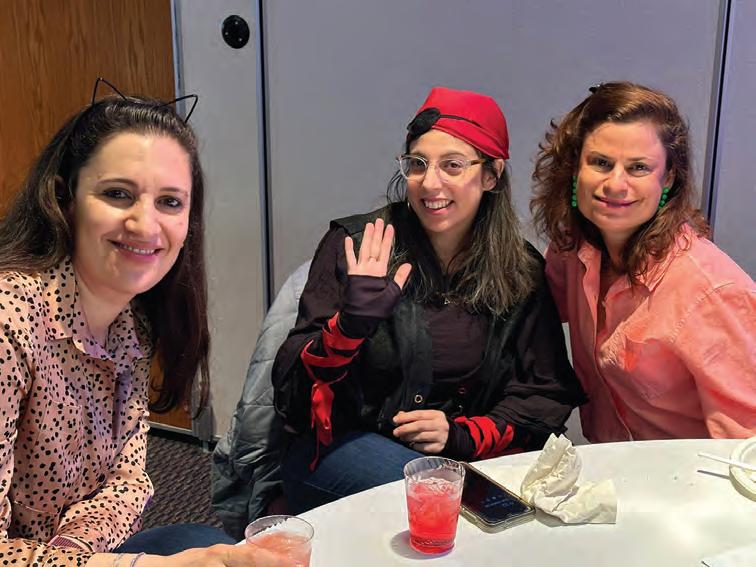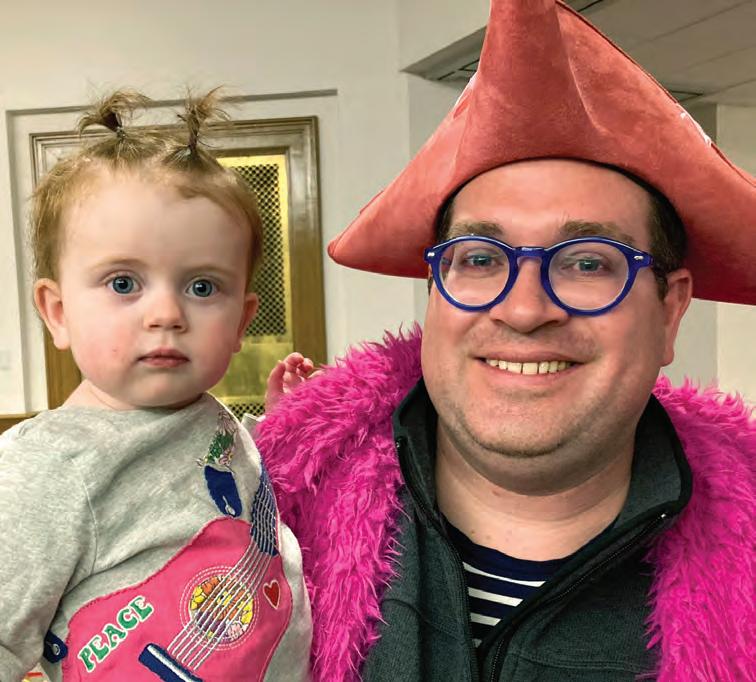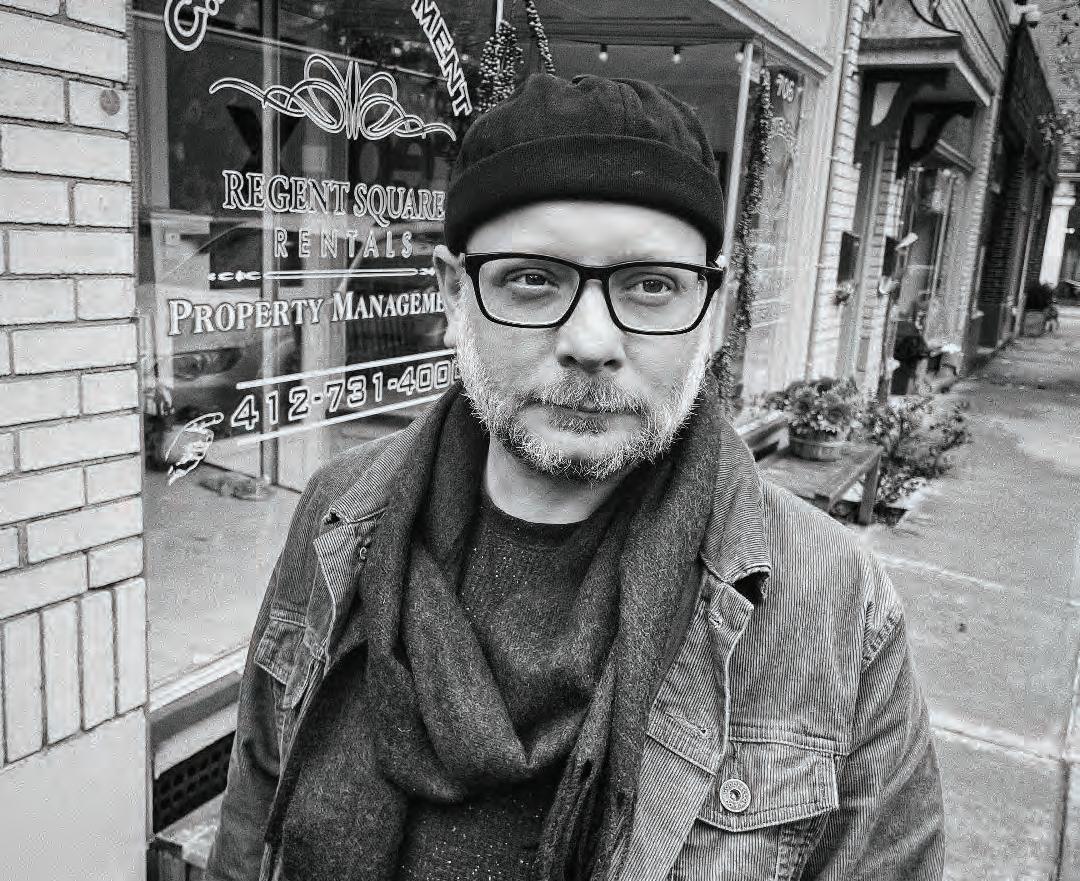
NOTEWORTHY
LOCAL
LOCAL
Lenda volorei ciendi non re nus
Big Nosh is coming!

LOCAL

LOCAL
3




LOCAL
LOCAL
Lenda volorei ciendi non re nus
Big Nosh is coming!

LOCAL

LOCAL
3


NCCK officially began with a small cadre in 2004, but its seeds of inception can be traced two
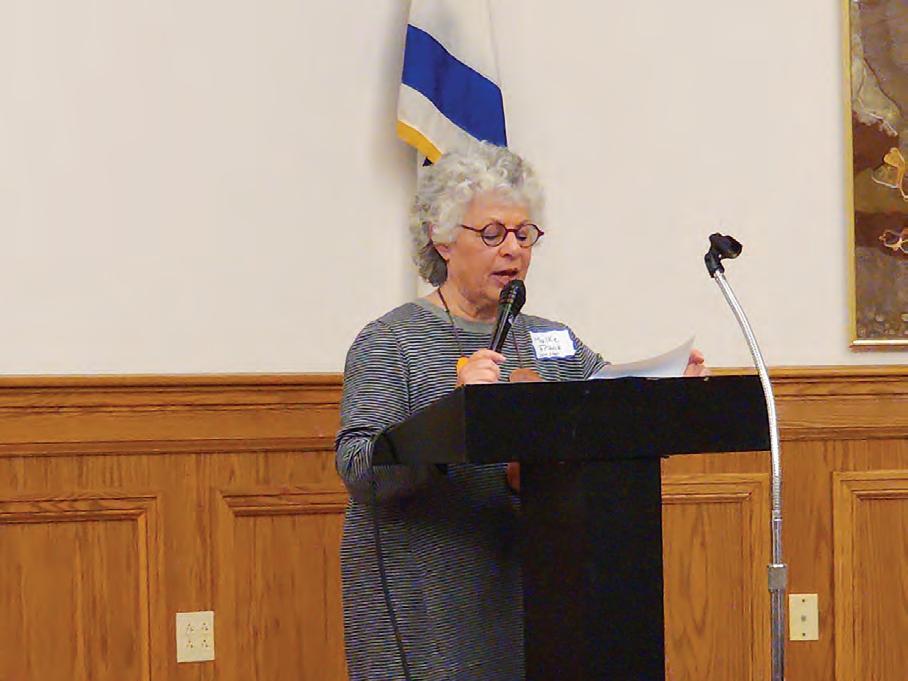
Community Chevra Kadisha struck matches and transferred flames to the small wicks. Members of the Jewish burial society rose, enumerated Pittsburgh’s deceased and recited the Mourner’s Kaddish and Traveler’s Prayer.
Lighting candles, chanting orisons and learning Torah are common practices for Jewish burial societies on Adar 7. For hundreds of years, chevra kadishas have marked the day with ceremonies, fasts and evening meals.
According to rabbinic literature, Moses died on Adar 7. The Midrash states that unlike those buried by a community of their peers, the great prophet’s interment was attended to by only God; symbolically, the Hebrew date is one of rest and celebration for Jewish burial societies worldwide.
Adar 7 fell on March 17 this year. In accordance with their traditions, NCCK members gathered that Sunday evening to eat, interact and reflect. Special attention was paid to the group’s 20th anniversary.
The passage of time necessitates a recapitulation of history, NCCK co-founder Malke Frank told 85 attendees.
So, with toasts and vignettes, participants approached a lectern, recalled their service and articulated the group’s story.
“When I think about growth, there were five or six of us sitting around Pat Cluss’ table,”
In 2002, Cluss read an article in Reform Judaism magazine about death and Jewish burial. Intrigued by the quiet and sacred work, Cluss mentioned her fascination months later during a coffee outing with Frank. The fellow Squirrel Hill resident said she, too, was drawn to the ancient practices and had even reached out to Pittsburgh’s Orthodox chevra kadisha about joining its group.
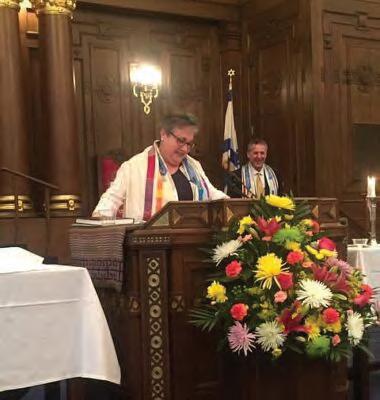
Cluss and Frank recruited several friends to meet with Rabbi Jamie Gibson of Temple Sinai.
From that first conversation with Gibson, Cluss produced four pages of typewritten notes.
“All of the things we would need to think about and do, and people we would need to talk to,” she said.
“What I tried to do, by the way,” Gibson said of that encounter, “was raise all the questions from all the angles that would have to be dealt with.”
A humorous inquiry was posed at the time about the group’s name.
“What were we going to call ourselves at 20 years old when we weren’t new anymore,” Gibson said. “We’re still rolling along.”
During its early years, NCCK met as often as twice a month to study, train and enlist members. With assistance from the late David Ryave of Ralph Schugar Chapel and David Zinner, the former executive director of the national organization Kavod v’Nichum, NCCK increased its understanding of classic
AChange indeed is approaching for the two Reform communities — Rodef Shalom Congregation and Temple Sinai — in Pittsburgh’s eastern neighborhoods.
Rabbi Sharyn Henry announced plans earlier this month to retire on June 30, 2025, after 26 years of service at Rodef Shalom.
In an emailed statement to the community, Henry said she is “curious about what the future holds for me, and yet, it will surely involve my family, yarn, books and Torah. (And, of course, my dog.)”
Henry told the Chronicle that the timing of her retirement was based on the continuing conversations about a possible partnership between Rodef Shalom and Temple Sinai, which began in December.
“I sent the letter when I sent it so people would understand how my retirement fits into the whole conversation between Rodef Shalom and Temple Sinai,” she said. “I feel like in a year from June, things will be moving in a particular direction. They’ll know what they need to do about clergy leadership.”
Please

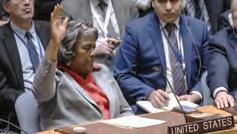
 Et odictiumqui andae amusam quistium si de net voloritat
Et odictiumqui andae amusam quistium si de net voloritat
Tell your bubbe — there will be babka. A three-day celebration of Jewish and Israeli food and culture is coming to Pittsburgh. Big Nosh, a fundraiser supporting the Pittsburgh Jewish Chronicle, will be held at Congregation Beth Shalom April 7-9.
Event planners hope to attract a broad range of community members, just as Pittsburgh’s Greek food festivals, Little Italy Days and Friday fish fries during Lent do, Chronicle Board Chair Evan H. Stein said.
“I’ve got two young kids, and we go to all these other festivals, and it’s been eating at me — no pun intended — that we don’t have a secular on-ramp for people who aren’t Jewish to try Jewish food,” he said.
Along with the “value proposition” of hosting a food festival in Pittsburgh, it’s great when nonprofits offer fun philanthropic activities, noted Stein, who pointed to the Jewish Community Center of Greater Pittsburgh’s Big Night and Hillel JUC’s Campus Superstar.
“We need an annual fundraiser,” he said.
Stein began volunteering with the Chronicle about three years ago and served as board treasurer before assuming the role of chair.
After joining the board, he learned the weekly publication had stopped charging for print subscriptions in 2017.
“We went the sort of public radio model where you pay what you will,” Stein said.
Recognizing a need to “stoke engagement,” he noted the absence of any annual fundraising event and quickly began working on a Jewish food festival to support Pittsburgh’s Jewish newspaper.
“It’s such a perfect pairing,” Stein said


of Big Nosh and the Chronicle. “A Jewish food festival isn’t religious, but it still celebrates Judaism — that’s what the Chronicle is. The Chronicle isn’t religious. It’s not political. It doesn’t lean to the right or the left. It’s not red or blue. It’s just our community. And that’s what the Jewish food festival presumes to be.”
Stein has spent years preparing for the program; and though more than a week remains until Big Nosh begins, he already can taste its greatness, he said.
When people walk into Beth Shalom’s ballroom there will be food, Judaica for purchase and information regarding Pittsburgh’s Jewish community.
On the right side of the room will be falafel, shawarma, sabich and bourkekas to buy, and on the left side will be a la carte selections.
Food will be cooked by Chef Judah Cowen of Elegant Edge Catering and certified kosher by the Vaad Harabonim of Pittsburgh. Additionally, event organizers are working with Square Cafe to ensure wine and beer will be available for purchase, Stein said.
The event’s timing is a boon for many
community members.
“A lot of people are already going to be in Passover mode in their mind,” Stein said. As opposed to cooking dinner and creating a mess, Big Nosh is a chance to come and enjoy delicious food “for three days,” he said.
The event lasts from 3-8 p.m. Sunday to Tuesday. Between 4-7 p.m. Cantor Henry Shapiro of Klezmerati will be performing live music, Stein added.
It’s the event’s first year, but excitement is already apparent. To date, Big Nosh has received the backing of several organizations and corporations, including the Jewish Federation of Greater Pittsburgh, Green Light Wireless, FSA Consulting, Next Pittsburgh, PJ Dick, Jewish National Fund and Visit Pittsburgh.
Stein, who also serves as founder and managing partner of FSA Consulting, praised the groups and numerous individuals who’ve championed the cause: “We’re thrilled with the support that we’ve gotten from the community.”
After dedicating countless hours to Big Nosh, he hopes people come to the event, support the Chronicle and learn more about Pittsburgh’s Jewish community.

SUBSCRIPTIONS
subscriptions@pittsburghjewishchronicle.org 412-687-1000, ext. 2
TO ADVERTISE
advertising@pittsburghjewishchronicle.org 412-687-1000, ext. 1
EDITORIAL DEPARTMENT
Email:
newsdesk@pittsburghjewishchronicle.org
BOARD OF TRUSTEES
Evan H. Stein, Board Chair
Gayle R. Kraut, Secretary
Evan Indianer, Immediate Past Chair
Gail Childs, Dan Droz, Malke Steinfeld
Frank, Seth Glick, Tammy Hepps, Judith Kanal, Cátia Kossovsky, Charles Saul, Derek Smith
GENERAL COUNSEL
Stuart R. Kaplan, Esq.
He’s also looking for volunteers.
“It’s going to take an army of 100 people, 100 volunteers from the community, to make this happen,” he said. “Anybody who wants to volunteer can sign up at pjcbignosh. com/volunteer.”
Stein doesn’t care whether eventgoers are compelled by their appetites or interest: He wants to see as many people there as possible.
“If your understanding of Jewish food is lox and bagels on a Sunday morning, come and try some gefilte fish. Maybe you’ll like it,” he said. “If you’ve never tried chopped liver, try some chopped liver. Try something new. Come check us out. See the beautiful artwork on display. Interact with the Jewish Chronicle information booth. Maybe make a donation.
“Try some food. Meet some new people and just have some fun.”
Big Nosh runs April 7-9 from 3-8 p.m. at Congregation Beth Shalom, 5915 Beacon St. Information is available at pghbignosh.com. PJC
Adam Reinherz can be reached at areinherz@pittsburghjewishchronicle.org.
5915 Beacon
Jim Busis, CEO and Publisher 412-228-4690 jbusis@pittsburghjewishchronicle.org
EDITORIAL
Toby Tabachnick, Editor 412-228-4577 ttabachnick@pittsburghjewishchronicle.org
Andy Gotlieb, Contributing Editor
Adam Reinherz, Senior Staff Writer 412-687-1000 areinherz@pittsburghjewishchronicle.org
David Rullo, Senior Staff Writer 412-687-1000 drullo@pittsburghjewishchronicle.org
ADVERTISING
Amy Weiss, Account Executive (412) 613-0697 aweiss@pittsburghjewishchronicle.org

Manuscripts,
for damages if, for any reason whatsoever, he fails to publish an advertisement or for any error in an advertisement. Acceptance of advertisers and of ad copy is subject to the publisher’s approval. The Pittsburgh Jewish Chronicle is not responsible if ads violate applicable laws and the advertiser will indemnify, hold harmless and defend the Pittsburgh Jewish Chronicle from all claims made by governmental agencies and consumers for any reason based on ads appearing in the Pittsburgh Jewish Chronicle

The refrain of children’s laughter mixed with the replicated sights, sounds, tastes and scents of the shuk — the popular Israeli marketplace — along with the traditional Megillah reading, celebrating Purim.
What made this particular celebration different from the thousands taking place in the Jewish world is its location. Chabad of the South Hills hosted its annual Purim festival this year at its new home, the former Good Shepherd Lutheran Church.
Rabbi Mendy Rosenblum, the director of Chabad of the South Hills, said he wasn’t necessarily seeking out a new space when he passed the former church on the corner of Bower Hill Road and Kane Boulevard in Scott Township.
“One day, I was driving, and I saw the ‘For Sale’ sign, and I couldn’t believe it because I had this dream and approached them in 2005,” he explained. “By the time we came to them, a developer had tied it up. So, I said, ‘OK, it was not meant to be.’”
The deal with the developer fell through, though. Rosenblum said the church then decided not to deal with developers, leaving open a possibility for the Jewish organization to acquire the site.
“It was an elderly congregation,” Rosenblum said. “They wanted to close out, and they wanted to leave it in good hands who would be proper stewards.”
Eventually, the two parties settled on a sale price of less than $500,000.
“I see it as an amazing opportunity,” Rosenblum said.
Ironically, sitting in the shadow of the new building is one of Chabad of the South Hills’ early homes, a nondescript structure now part of the Bower Hill Swim Club.
Chabad of the South Hills has come a long way over the last 25 years, building popular programs and events including sold-out adult education courses and its annual Jewish Comedy Night.
Rosenblum said the new location — at
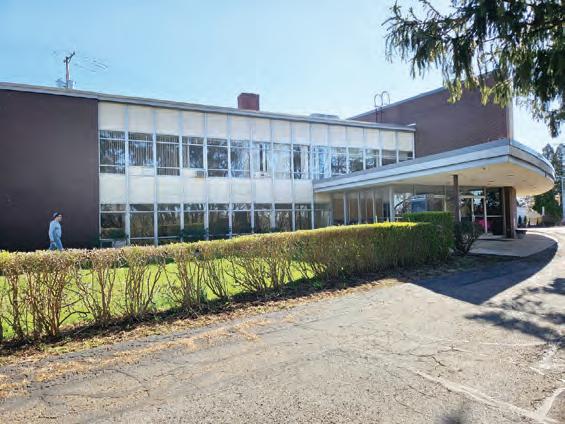
community members in the South Hills.
It is also closer to many of the Jewish institutions in the southern suburbs, including the Jewish Community Center of the South Hills, which sits about a block away.
Rosenblum said he foresees a gradual move from the organization’s McFarland Road location, which will occur in three phases.
The first, which Rosenblum said has already begun, consists of making small repairs needed in the building — things like fixing small leaks, as well as upgrading the security, something that will be aided by a state security grant.
Programming gradually will move to the new building during this stage, including the Purim Festival that took place on March 24.
Rosenblum said that during this initial phase, the building will be used “as is.” Visitors will find a functional building without a lot of Jewish character or modern updates.
In fact, as one makes their way through the new location, they’ll find a church that hasn’t been updated in decades and one with a few idiosyncrasies — stained glass windows in the formerly Christian sanctuary, for instance, that represent decidedly non-Jewish scenes. Those will be updated to eliminate the non-Jewish themes.
Phase 2 will include larger improvements — perhaps changing carpets and other cosmetic alterations — and moving all programs, except for religious services, to the new building.
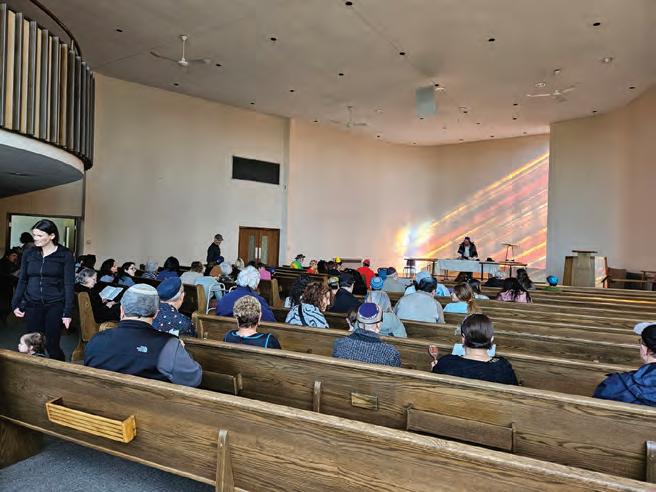
held there as well.
This time frame also allows others who prefer to be close enough to the center to walk to services to make any required changes, Rosenblum said.
This final step will be a reimagined Jewish building that will include a mikvah, something Rosenblum has wanted to do for some time.
He’d also like to upgrade the kitchen, which is fully functional but a bit outdated.
Of course, those projects will require additional money and fundraising.
In the short term, Rosenblum is excited about some of the opportunities Chabad will be able to offer, like summer camp, which hasn’t occurred in the last few years but will start again this June.
“At the end of the day the (old) building didn’t lend itself to it, or to growth,” he said. “It wasn’t the ideal place to hold it.”
If the last quarter-century has reflected the Jewish journey in the desert for Chabad of the South Hills — pausing at different locations for a few years at a time — Rosenblum said this new site will most likely be the organization’s permanent home.
“I would say that if I was driving and another property showed up, I don’t think I would consider it,” Rosenblum said. “I feel like this has the potential to have everything we need here. There’s nothing holding us back.” PJC
David Rullo can be reached at drullo@ pittsburghjewishchronicle.org.
The final stage will take place when Rosenblum and his family find new homes within walking distance of the new center. Shabbat and holiday services will then be
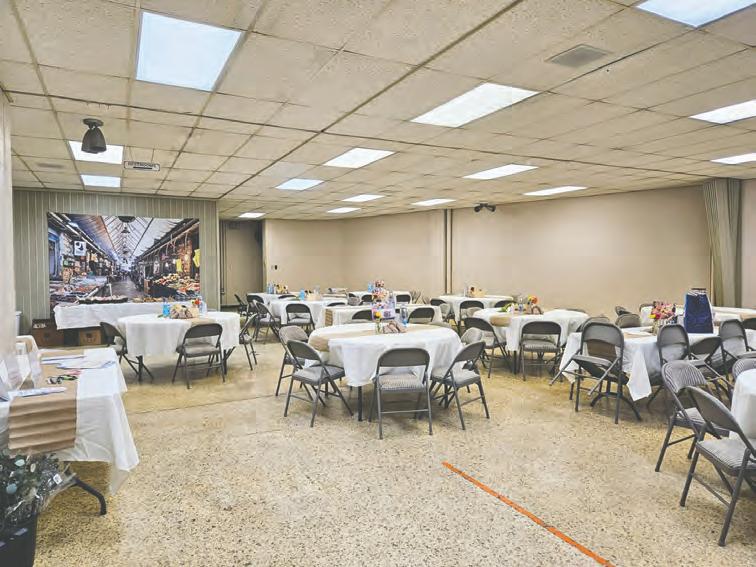

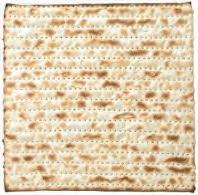


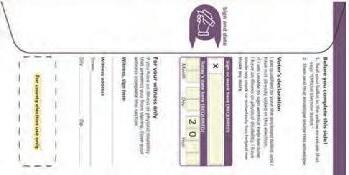

 By Toby Tabachnick | Editor
By Toby Tabachnick | Editor
Allegheny County voters have six new locations at which to drop off mailin ballots for the upcoming primary election, thanks to a unanimous vote last week by the Allegheny County Board of Elections.
Adding to an existing location downtown, the new drop-off locations, which will be staffed, are in Squirrel Hill, Moon, McKeesport, North Park, South Park and Boyce Park.
Ballots will be transferred to the election warehouse and kept in a locked facility under 24-hour surveillance.
The primary will be held on April 23, the first day of Passover. Those who will not be headed to the polls can request a mail-in ballot at www.pavoterservices.pa.gov/OnlineAbsentee Application.
The additional ballot return sites will be open the two weekends before Election Day: Saturday, April 13, and April 20, 9 a.m. to 5 p.m.; and Sunday, April 14, and April 21, 11 a.m. – 7 p.m.
Ballot return sites will only accept completed ballots. There are no provisions for “over-thecounter” voting at these sites.
Voters may drop off mail-in or absentee ballots at these locations:
East End: Carnegie Public Library of Squirrel Hill 5801 Forbes Ave., Pittsburgh, PA 15217
South: South Park Ice Rink 30 Corrigan Drive, Bethel Park, PA 15102
North: North Park Ice Rink 1200 Pearce Mill Road, Wexford, PA 15090
East: Boyce Park Four Seasons Lodge 901 Centerview Drive, Plum, PA 15239
West: 911 Call Center 150 Hookstown Grade Road, Moon, PA 15108
Mon Valley: McKeesport TBD
The County Office Building will be open for voters to apply for mail-in or absentee ballots and vote in person (“over-the-counter voting”), as well as return of completed mail-in ballots. Over-the-counter voting is available on the first floor of the County Office Building at the corner of Forbes Avenue and Ross Street as soon as ballots are ready.
The deadline to register to vote is April 8, and April 16 is the deadline for applying for an absentee or mail-in ballot. All ballots must be received by 8 p.m. on Election Day, April 23. PJC
Toby Tabachnick can be reached at ttabachnick@pittsburghjewishchronicle.org.
About 20 “We Stand With Israel” yard signs were vandalized in Squirrel Hill earlier this week, with red handprints superimposed over the words and the image of the Israeli flag.
“This is the second day that the Squirrel Hill community has woken up to their ‘We Stand With Israel’ yard signs having been desecrated with what looks to be red handprints indicative of blood,” Shawn Brokos, director of community security for the Jewish Federation of Greater Pittsburgh, said Tuesday.
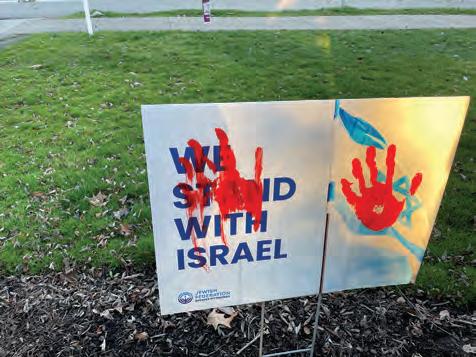
The red hands symbol has been associated with a lynching of Israelis in Ramallah during the Second Intifada.
Brokos said the Federation is working closely with Zone 4 of the Pittsburgh Bureau of Police.
“Fortunately, our community is excellent in reporting,” Brokos said, “so I’ve gotten emails, phone calls, text messages. Everything we’re getting, I’m routing it directly to the detectives at Zone 4.”
She urged everyone who has “experienced this, or who has had neighbors experiencing this desecration,” and who has video surveillance coverage — including doorbell camera footage — to share those recordings with the Federation, which will facilitate getting them to the police.
When the suspect or suspects are apprehended, Brokos said, they could be charged at the local level with ethnic intimidation. At the federal level, their actions might be prosecuted as hate crimes.
Brokos encourages the community “to look out for one another, and that’s done by reporting suspicious incidents, vandalism, graffiti to the Jewish Federation and to 911.
“I would really encourage folks to report this to 911,” she stressed. “Each of these incidents in totality will be part of the investigation by Pittsburgh Bureau of Police. And the more that we alert 911 and file reports, the more patrol coverage we will be getting. I know they’re already looking to increase patrols as a result of this.”
Brokos praised the local Jewish community “who is amazing in reporting to us.”
“I’ve gotten voluminous calls, texts, emails, incident reports, and it’s so incredibly helpful because it helps us collect the dots so we can connect the dots,” she said.
Anyone experiencing an antisemitic incident should file a report at /jewishpgh.org/ form/incident-report/ and call 911. PJC
Toby Tabachnick can be reached at ttabachnick@pittsburghjewishchronicle.org.
Attorney Mary Jo Dively remembers how former Carnegie Mellon University President Jared L. “Jerry” Cohon, an influential academic and Pittsburgh Jew who died March 16, used to talk about legal matters.
“He typically started our frequent discussions about legal matters with one question: ‘What’s the right thing to do, Mary Jo?’ — not, the expedient thing, or the thing that would be least risky, but the right thing,” said Dively, who Cohon hired in 2002 and who today is the Oakland-based university’s vice president, general counsel and secretary of the corporation.
“For a lawyer, this was a dream client,” Dively said. “I’ve never known anyone who was as comfortable in his own skin as Jerry Cohon. Or in doing what he felt to be the right thing — no matter the consequences to him personally.”
Cohon, who served from 1997 to 2013 as CMU’s eighth president, died peacefully in Ligonier, Pennsylvania, with his wife by his side, his family said. He was 76.
Cohon’s tenure at CMU was transformational, as the university, which industrialist Andrew Carnegie endowed with $1 million and founded in November 1900, arguably became one of the world’s preeminent institutions of higher education.

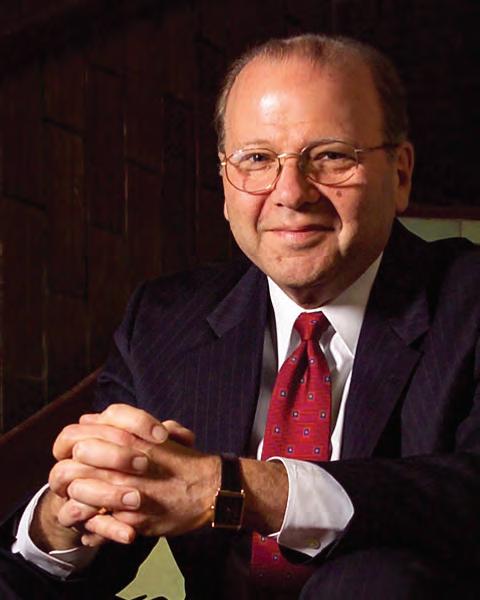
Blossoming from 157 acres, part of which sits on the lip of Schenley Park, CMU went global under Cohon’s leadership, opening satellite campuses and programs in Asia, Europe, Africa and the Middle East.
Cohon served on the Atomic Energy Commission, the Homeland Security Council, the Carnegie Foundation, the American Association of Universities board and on multiple national and international corporate boards, CMU officials said in an obituary.
Cohon was a distinguished member of the National Academy of Engineering.
But Cohon’s eyes always faced Pittsburgh, those who worked with him said.
CMU President Farnam Jahanian called Cohon a mensch and stressed his death is “a







devastating loss for the CMU community, for Pittsburgh and for the nation” in an email sent to students on March 16.
“His brilliant mind, unyielding energy and unimpeachable integrity have made our institution — and our society — better in innumerable ways,” Jahanian said.
“For all of us grieving this loss, let us find solace in the realization that President Emeritus Jerry Cohon’s extraordinary legacy is already inextricably threaded throughout our institution and will continue to be so for generations to come,” he added.
Cohon was born on Oct. 7, 1947, in the Cleveland suburb of Beachwood, Ohio, to Delbert and Ruth Cohon.
When Cohon was a 7-year-old second grader, he met the love of his life, Maureen “Bunny” Cohon. “Bunny” and Jerry met on a field trip to see the Cleveland Philharmonic Orchestra, when Cohon helped her with her coat.
Cohon was a drummer in his Ohio high school and played defensive lineman on the school’s football team, said Rabbi Daniel Fellman in a March 19 eulogy at Temple Sinai in Squirrel Hill.
Cohon left Ohio and pursued an undergraduate degree from the University of Pennsylvania, which he received in 1969, and a doctorate from the Massachusetts Institute of Technology in 1973. Both degrees were in civil engineering.
After joining the Johns Hopkins University
faculty, Cohon climbed the ranks to become vice provost for research.
While at Johns Hopkins, Cohon also played in a faculty-driven rock band; Cohon — on drums — went by the name “Clive-us Jive-us” in the band The New Crusty Nostrils, Fellman said.
He later served as dean of Yale University’s School of Forestry and Environmental Studies before relocating to Pittsburgh to take CMU’s top job in 1997.
“Jerry possessed extraordinary gifts,” Fellman said. “A brilliant mind, a gifted engineer, a loved teacher, an effective leader, a visionary, a loving husband and father and grandfather. And maybe most of all, a holy ability to share with others, to connect with others, to create with others.”
After retiring from the presidency in 2013, Cohon continued to serve on the school’s faculty. But, his 16 years at the helm of CMU constitute the second-longest tenure of any president in the university’s 124-year history. (The late Richard Cyert served 18 years, from 1972 to 1990.)
Rabbi James Gibson, Temple Sinai’s spiritual leader from 1988 to 2020, met Cohon some 20 years ago.
He married Cohon’s daughter, Hallie, to Joshua Donner, and named Nathan and Solomon, the couple’s children.
“[Cohon] didn’t regularly attend synagogue,








Submit calendar items on the Chronicle’s website, pittsburghjewishchronicle.org. Submissions also will be included in print. Events will run in the print edition beginning one month prior to the date as space allows. The deadline for submissions is Friday, noon.
SATURDAY, MARCH 30
Chabad of Monroeville invites you to spend an hour playing mahjong and other games. Come and play, shmooze, learn a word of the Torah, say a prayer for Israel, and, of course, nosh on some yummy treats! RSVP is required at SusanEBurgess@gmail.com or text or call 412-295-1838. 7 p.m. Chabad Jewish Center of Monroeville. jewishmonroeville.com/mahjong.
Join Tree of Life Congregation for Casino Night and Game Night, an evening of board and casino games, light bites, nonalcoholic and alcoholic beverages and great company. Try your luck at the craps table, spin the roulette wheel, or challenge each other at mahjong. There will be baskets of goodies ra ed o , including a night’s stay at the William Penn Hotel. $18 general admission; $36 for general admission plus 20 chips and one drink; $54 for general admission plus 50 chips and two drinks. 7:30 p.m. Rodef Shalom Congregation, 4905 Fifth Ave. treeoflifepgh.org/event/ casinonight.
SUNDAYS, MARCH 31-DEC. 29
Chabad of Monroeville invites you to BLT (Bagel, Lox, Tefillin), an in-person tefillin club followed by breakfast. No prior experience necessary. Tefillin available for use. 9 a.m. 2715 Mosside Blvd. RSVP appreciated at chabad@jewishmonroeville.com jewishmonroeville.com/blt.
Join a lay-led online parshah study group to discuss the week’s Torah portion. No Hebrew knowledge needed. The goal is to build community while deepening understanding of the text. 8:30 p.m. For more information, visit bethshalompgh.org.
MONDAY, APRIL 1
Join the 10.27 Healing Partnership and practitioner Shawn Fertitta for Reiki-infused Sound Bathing Immerse yourself in the soothing tones of crystal and Tibetan singing bowls. His experience is tailored to calm your mind, body and soul, promoting optimal healing. 10 a.m. South Hills JCC. 1027healingpartnership.org/ reiki-infused-sound-bathing.
MONDAYS, APRIL 1–MAY 13
H. Arnold and Adrien B. Gefsky Community Scholar Rabbi Danny Schi presents Torah 2. Understanding the Torah and what it asks of us is perhaps one of the most important things that a Jew can learn. In Torah 2, Schi will explore the second half of Leviticus and all of Numbers and Deuteronomy. 9:30 a.m. $225. Zoom. jewishpgh.org/event/torah-2-2/ 2023-10-09.
MONDAYS, APRIL 1–DEC. 28
Join Congregation Beth Shalom for a weekly Talmud study. 9:15 a.m. For more information, visit bethshalompgh.org.
TUESDAYS, APRIL 2–MAY 14
Understanding and explaining Israel’s current position requires knowledge of history. In the 10-part course, A History of The Arab-Israel-Iran Conflict: All You Need to Know, Rabbi Danny Schi will provide a full overview of the regional conflict that Israel has experienced over the last century. The cost of taking a course is never a barrier to participation. If price is an issue, please contact the organizer of this course so that we can make the cost comfortable for you. $145. 8 p.m. jewishpgh.org/series/history-of-the-arab-israeliran-conflict.
WEDNESDAYS, APRIL 3–MAY 15
The Jewish Federation of Greater Pittsburgh virtually presents two Melton courses back-to-back: “Ethics” and Crossroads.” In “Ethics,” learn how Jewish teachings shed light on Jewish issues. “Crossroads” will present an emphasis on reclaiming the richness of Jewish history. 7 p.m. $300 for this 25-session series (book included). jewishpgh.org/series/melton-ethics-crossroads.
WEDNESDAYS, APRIL 3–DEC. 18
Bring the parashah alive and make it personally relevant and meaningful with Rabbi Mark Goodman in this weekly Parashah Discussion: Life & Text 12:15 p.m. For more information, visit bethshalompgh. org/life-text.
Temple Sinai’s Rabbi Daniel Fellman presents a weekly Parshat/Torah portion class on site and online. Call 412-421-9715 for more information and the Zoom link.
THURSDAY, APRIL 4
Facilitated by local clergy from Jewish and Christian backgrounds, the Jewish Christian Dialogue is a monthly discussion that explores topics of similarities and di erences. Noon. Online. rodefshalom.org.
Join NCJW Pittsburgh for Just Films: “Hysterical.” “Hysterical” is an honest and hilarious backstage pass into the lives of some of stand-up comedy’s most boundary-breaking women, exploring the hard-fought journey to become the voices of their generation and their gender. 5:30 p.m. Free. Chatham University. chatham.edu/events/details.cfm?eventid=31746.
THURSDAYS, APRIL 4–APRIL 18
Bring your lunch and join Rabbi Jessica Locketz for Lunch Time Torah: Spring Holiday edition. Learn about the spring holidays. O ered in person and online. 1 p.m. 4905 Fifth Ave. $54 for non-members. rodefshalom.org/lunch.
THURSDAYS, APRIL 4–DEC. 5
Join Beth El Congregation of the South Hills for Hope & Healing on Zoom the first Thursday of each month, a 30-minute program led by Rabbi Amy Greenbaum. Chant, breathe, pray for healing and seek peace. Call Beth El at 412-561-1168 to receive the Zoom link. 5:30 p.m. bethelcong.org.
SATURDAY, APRIL 6
Join Adat Shalom for a night of communitywide storytelling with Alan Olifson, award-winning humorist and commentator. Olifson will host “A Night of Stories” — the theme for this open mic event is “The Kindness of Strangers.” All adults are welcome — sharers and listeners. Refreshments served. $36. 7:30 p.m. Adat Shalom, 368 Guys Run Road, 15024. Pre-registration required by March 30, adatshalompgh.org.
SATURDAYS, THURSDAYS, APRIL 6–MAY 9
The Healing with Nature Mosaic Project is designed to respond to the human experience of grief and loss through the healing power of nature and of creative expression. The six-week, 10-session program facilitated by mosaic artist Laura Jean McLaughlin will guide participants in the collective creation of a community mosaic mural, gathering shattered pieces together to tell a story of community healing and resilience. Saturdays, 1-3 p.m. Thursdays, 4-6 p.m. Frick Environmental Center, 2005 Beechwood Blvd. Registration required. 1027healingpartnership.org/ healing-with-nature-mosaic-project.
SUNDAY, APRIL 7–TUESDAY, APRIL 9
The Pittsburgh Jewish Chronicle’s first-ever Big Nosh will be the biggest three-day celebration of Jewish food our community has ever seen. Enjoy Klezmer music, Judaica and, most of all, a lot of great food. Take-out is also available via advance ordering on the Big Nosh website. Strictly kosher under the supervision of the Vaad Harabonim of Pittsburgh. 3-8 p.m. Congregation Beth Shalom, 5915 Beacon St. pjcbignosh.com.
MONDAY, APRIL 8
The Jewish Federation of Greater Pittsburgh’s Community Relations Council will host Bhavini Patel, a candidate running for Congress in Pennsylvania’s 12th District. Open to anyone in the community who wants to ask Patel a question. Registration required to attend in person. To attend online no registration is required. 7 p.m. 2000 Technology Drive. jewishpgh.org/event/co ee-andconversations-with-bhavini-patel.
TUESDAYS, APRIL 9, 16, 23
Join JFCS for SPACE Training: Rethinking Parenting Anxious Kids, a four-part virtual interactive workshop for parents. Learn the principles of SPACE (Supportive Parenting for Anxious Childhood Emotions), an evidencebased treatment developed at Yale University. Walk away with concrete strategies for making simple shifts in your own behavior that can lead to significant changes in your children and ultimately create a more peaceful and cooperative household. This workshop is applicable for parents of kids in second through 12th grades. It is recommended that all parents/guardians attend the workshops together. Free. Noon. jfcspgh.org/ spaceworkshop.
WEDNESDAY, APRIL 10
Enjoy an hour of nourishment for the mind, body, and soul at Chabad of Squirrel Hills’ Ladies Lunch and Learn. Explore words of wisdom for the month of Nissan. Noon. $18. 1700 Beechwood Blvd. chabadpgh.com/lunch.
Join Congregation Beth Shalom, Rodef Shalom Congregation and Temple Sinai for their Israel Speaker Series, a collaborative series with di erent points of view. Check the website for speakers, location and topics. $18 for all speakers; $10 for one session. 7:30 p.m. bethshalompgh.org/israel-speaker-seriesfirst-session-is-monday-february-5.
THURSDAY, APRIL 11
Create a beautiful resin tray with handles and enjoy champagne and sweet treats with Chabad of Squirrel Hill at Resin and Rose. $40. 1700 Beechwood Blvd. chabadpgh.com/resin.
THURSDAYS, APRIL 11, 18
Join Rabbi Amy Bardack and Dor Hadash member Charlie White for a morning Shabbat service study, a nine-session, in-depth study of the structure and content of the siddur, with a focus on the prayers of Shabbat morning. 7:30 p.m. Free for members; $120 suggested donation for nonmembers. In-person with a virtual option. congregationdorhadash.shulcloud. com/event/class-on-shabbat-morning-services.html.
SUNDAY, APRIL 14
14 Steps + 10 Plagues, 24 delicious kinds of ice cream! Come and enjoy 24 di erent flavors (some vegan
options, too) at the Ice Cream Pre-Passover Seder sponsored by Tree of Life Congregation. The ice cream is kosher and generously supplied by Bruster’s of Squirrel Hill. Reservations by April 12 are recommended. 11 a.m. $5 in advance, $10 at the door. treeoflifepgh.org/ event/icecreamseder.
WEDNESDAYS, APRIL 17, MAY 15, JUNE 19, JULY 17, AUG. 21, SEPT. 18, OCT. 16, NOV. 20, DEC. 18
Join AgeWell for the Intergenerational Family Dynamics Discussion Group at JCC South Hills the third Wednesday of each month. Led by intergenerational specialist/presenter and educator Audree Schall. The group is geared toward anyone who has children, grandchildren, a spouse, siblings or parents. Whether you have family harmony or strife, these discussions are going to be thought-provoking, with tools to help build strong relationships and family unity. Free. 12:30 p.m.
FRIDAY, APRIL 19
Join Rodef Shalom Cantor Toby Glaser for a 20-40 Kabbalat Shabbat. Get to know other Pittsburgh young Jewish professionals and close out the week with wine, refreshments and great company. Registration required. 9 p.m. 4905 Fifth Ave. rodefshalom.org.
MONDAY, APRIL 22
Celebrate the holiday of Passover with Chabad of Squirrel Hill at a community Passover Seder with the warm company of family and friends. 7:30 p.m. $25 adult/$15 child. 1700 Beechwood Blvd. chabadpgh.com/seder.
THURSDAY, MAY 2
Film Pittsburgh and The Arthur J. and Betty F. Diskin Cultural Endowment Fund of the Jewish Federation of Greater Pittsburgh present JFilm Festival’s Opening Night screening of: “Left Alone Rhapsody: The Musical Memoir of Pianist John Bayless,” followed by a dessert reception, live performance by John Bayless and question-and-answer with Bayless and director Stewart M. Schulmnan 7 p.m. Carnegie Musical Hall. $118. 4400 Forbes Ave. filmpittsburgh.org. PJC
The Pittsburgh Jewish Chronicle invites you to join the Chronicle Book Club for its April 14 discussion of “Golda Meir: Israel’s Matriarch,” by Deborah Lipstadt. From The Times of Israel: “In this examination of the pioneering Israeli leader, Lipstadt succeeds in painting a visceral portrait of Golda Meir as a gifted orator and blunt negotiator, a pragmatic, single-minded and often inflexible leader who was wholeheartedly devoted to the Zionist mission.”
Your Hosts:
Toby Tabachnick, editor of the Chronicle
David Rullo, Chronicle senior staff writer
How and When:
We will meet on Zoom on Sunday, April 14, at noon.
What To Do
Buy: “Golda Meir: Israel’s Matriarch.” It is available at area Barnes & Noble stores and from online retailers, including Amazon and Barnes & Noble. It also has limited availability in the Carnegie Library system.
Email: Contact us at drullo@pittsburgh jewishchronicle.org, and write “Chronicle Book Club” in the subject line. We will send
you a Zoom link for the discussion meeting. Registration closes on April 12.
Happy reading! PJC
— Toby Tabachnick
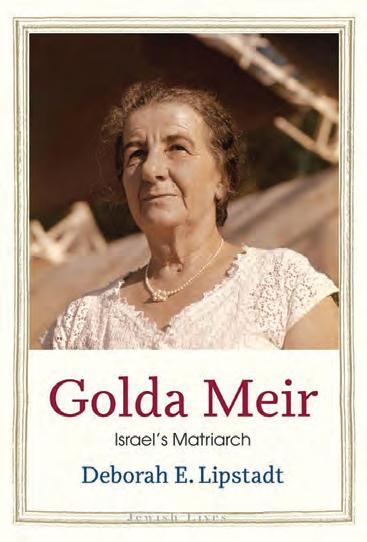

The United States abstained on a United Nations Security Council resolution calling for a cease-fire in the Israel-Hamas war, allowing it to pass.
The abstention was met with a scathing response from Israeli Prime Minister Benjamin Netanyahu, who accused the Biden administration of “harming” Israel’s war efforts and its efforts to free hostages held by Hamas in Gaza. He canceled a delegation of top Israeli officials who were set to visit Washington, D.C. to discuss their war strategy.
The Biden administration had thus far vetoed all Security Council resolutions calling for a cease-fire in the war. The decision to abstain and clear the way for the resolution to pass — in addition to Netanyahu’s response — reflected a dramatic acceleration of worsening ties between the Biden and Netanyahu governments after months of U.S. support for Israel in the war.
The war began nearly six months ago on Oct. 7 with Hamas’ invasion of Israel, in which the terror group killed some 1,200 people and took approximately 250 hostage.
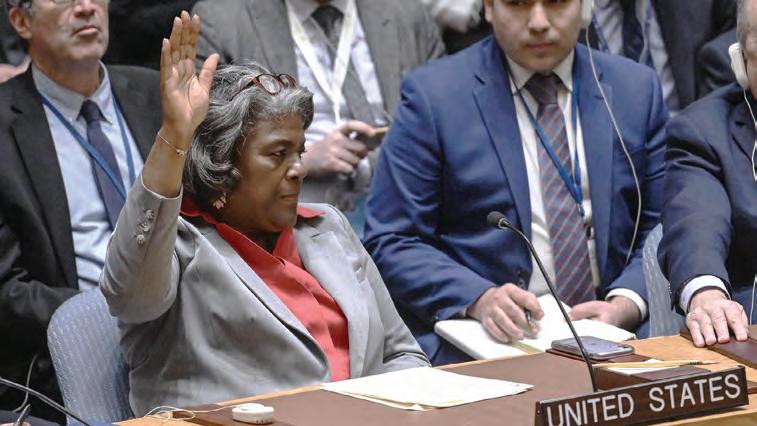
Since then, the Hamas-run Gaza health ministry has claimed that more than 32,000 Palestinians have been killed in the war. More than 250 Israeli soldiers have also been killed in the Israeli invasion of Gaza. Global health officials also say the enclave is on the verge of famine.
The resolution, whose lead sponsor was Algeria, demands an “immediate ceasefire” during the Muslim holy month of Ramadan,
which began two weeks ago. It also demands “the immediate and unconditional release of all hostages,” and stresses the “urgent need to expand the flow of humanitarian assistance to and reinforce the protection of civilians in the entire Gaza Strip.”
The United States, which has been backing indirect negotiations for a temporary ceasefire and hostage release, denied that its abstention was a change in policy. The U.S.
decision to abstain was made at the last minute, according to the United Nations news service, after the United States sought, and achieved, the replacement of the phrase “permanent ceasefire” with the phrase “immediate ceasefire.”
John Kirby, the spokesman for the National Security Council, said in a call with reporters immediately following the vote that the United States abstained, rather than vetoing, because the resolution included a call for a release of Israeli hostages.
“Our vote does not represent a shift in our policy,” Kirby said. “We have been clear and consistent in our support for a hostage release as part of a cease-fire.”
Netanyahu portrayed the vote differently in a statement from his office. Noting that the resolution does not condition a cease-fire on a release of hostages, the statement said the United States “has abandoned its policy in the UN today.” A resolution sponsored last week by the U.S. mission had linked a cease-fire with a hostage release.
“This constitutes a clear departure from the consistent US position in the Security Council since the beginning of the war,” the statement said. “Today’s resolution gives Hamas hope that international pressure will
Please see Gaza, page 11
Jews on California campuses stage statewide ‘sleep-in’ protests Jewish academics protesting campus antisemitism have found a new way to vent their frustrations: Sleep on it, JTA.org reported.
That’s the idea behind a new “sleep-in” mass protest that Jewish students and faculty across multiple campuses, mostly in California, launched on March 19. It comes amid increased scrutiny of antisemitism on many campuses and particularly at the University of California, Berkeley — a just-announced congressional investigation will probe what the investigating committee called Berkeley’s “failure to protect Jewish students.”
The sleep-in was inspired by Ron Hassner, the chair of Israel studies at Berkeley, who moved into his office until the university took concrete steps to address antisemitism on campus. Hassner hopes to inspire Jews to take nonviolent action and pressure administrators to more forthrightly deal with speaker disruptions, campus spaces occupied by pro-Palestinian protesters, and other concerns raised by Jewish students amid the IsraelHamas war. He has since ended the sit-in.
The main trigger for Hassner’s actions, and the increased scrutiny at Berkeley, was a Feb. 26 protest by pro-Palestinian groups that turned violent. A visiting Israeli speaker’s planned event was shut down and some Jewish students were assaulted. Afraid that a subsequent march by Jewish students directed at a highly visible pro-Palestinian campus protest might escalate into violence, he sought to offer an alternative.
Canadian Jewish agencies sue over government rules they say curb kosher meat production
Two of the most prominent kosher certification agencies in Canada are suing the national government, claiming that recent regulations around animal slaughter are putting the country’s kosher industry at risk, JTA.org reported.
The Kashruth Council of Canada and the Jewish Community Council of Montreal, along with the Centre for Israel and Jewish Affairs, an umbrella group representing Canada’s nearly 500,000 Jews, say in the suit that the enforcement of guidelines first introduced several years ago has led to a dramatic decline in the domestic production of kosher meat in the country.
The lawsuit says that between August 2022 and January 2023, the number of kosher meat processing plants in Canada has fallen from six to four, leading to a decline in the weekly yield of domestically produced kosher beef, from 3,400 to 1,750 head of cattle.
The lawsuit surrounds the Safe Food for Canadians Regulations instituted by the Canadian Food Inspection Agency, which monitors food, animals and plants to ensure consumer safety. According to the regulations, animal slaughter should include the initial use of a stun gun. But that is prohibited under the laws of Jewish ritual slaughter, or shechita, which mandate that the animal must be uninjured before it is slaughtered with a knife.
Virginia school district to let students opt out of Holocaust lesson, citing Jewish students’ ‘trauma’
A school district in suburban Virginia is
April 1, 1925 — Hebrew University opens
drawing backlash for announcing that middle school students could opt out of a talk by a Holocaust survivor, JTA.org reported.
Critics of the school connected the announcement with widespread reports of spiking antisemitism in K-12 schools following the outbreak of the Israel-Hamas war. But the school and the local Jewish Community Relations Council denied those claims, later announcing that the opt-out was specifically intended to help Jewish students.
Fairfax County Public Schools, in a populous area outside Washington, D.C. with several Jewish institutions, reportedly told parents, “We understand that all students have different experiences. If you prefer to opt your child out from participating in this presentation, please email your child’s history teacher and they will be provided an alternate assignment.”
In a statement, a district representative said it gave parents the opt-out option not to appease antisemites but due to feedback it has received in the past from Jewish students.
More than 90% of Palestinians say no atrocities perpetrated on Oct. 7
Ninety-three percent of Palestinians believe that Hamas did not commit atrocities during its mass invasion of southern Israel on Oct. 7, and 72% support the attack, according to recent polling conducted by the Palestinian C enter for Policy and Survey Research, JNS.org reported.
The survey of 1,580 Palestinians in Gaza, Judea and Samaria was conducted between March 5 and 10 via in-person interviews. The margin of error was 3%.
Notably, among Palestinians who watched videos of the atrocities filmed by the perpetrators themselves, 81% still did not believe atrocities were committed.
Palestinian support for the Oct. 7 attack is virtually unchanged since the last poll was conducted three months ago, with 71% calling Hamas’ decision to launch it “correct.” Gazans’ support for Hamas continuing to rule the Gaza Strip has increased by 14 points to more than 50% since December, with nearly 60% believing that the terrorist group will remain in control of the territory.
The Kinneret Authority said the Sea of Galilee (Kinneret) is approaching its maximum capacity for the first time since 1992, Globes reported.
As of March 21, the sea was just 73 centimeters below its maximum level of 208.8 meters below sea level.
The Mekorot Israel National Water Co. and the Israel Water Authority debuted the “Reverse Water Carrier” project last year in the north to allow desalinated water from the Mediterranean Sea to flow inland to the Kinneret. The goal is to maintain the lake’s level in dry and low rainfall years.
Northern and central Israel have already had well over their average rainfall this year. Rainfall has been below average in Jerusalem and southern Israel. PJC
— Compiled by Andy Gotlieb
March 29, 1967 — Sholem Aleichem’s son-in-law, translator dies Writer Yitzhak Dov Berkowitz, who translated the work of his father-in-law, Sholem Aleichem, into Hebrew, dies at 82. In his own writing, he mixed tradition and modernity and helped bring realism to Hebrew.
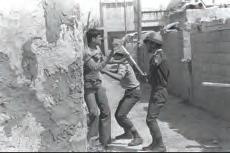
March 30, 1976 — 6 Israeli Arabs are killed in land protests
Protests over the planned government seizure of Arab land in the Galilee turn into deadly riots that are commemorated annually as Land Day, the first widespread Arab demonstrations in Israel.
March 31, 2002 — Sharon condemns Arafat after bombings
Prime Minister Ariel Sharon declares Palestinian Authority President Yasser Arafat the enemy of Israel and the free world after two suicide bombings in one day, including a Hamas attack that kills 16 in Haifa.
The Hebrew University of Jerusalem opens on Mount Scopus, fulfilling a dream first expressed in a letter from Heidelberg University professor Herman Schapira to the Hebrew newspaper HaMelitz in 1882.
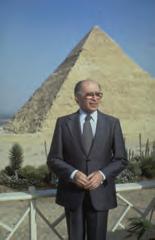
April 2, 1979 — Menachem Begin visits Egypt
Menachem Begin becomes the first Israeli prime minister to visit Egypt when he arrives in Cairo a week after signing the peace treaty with Egypt. A military band welcomes him with “Hatikva,” then he visits tourist spots.
April 3, 1994 — 2nd Air Force commander dies
Maj. Gen. Aharon Remez dies in Jerusalem at 74. A fighter pilot with the Royal Air Force in World War II, he served as the second commander in chief of Israel’s air force from July 1948 to December 1950.
April 4, 1920 — Riots break out in Old City
The Nebi Musa festival, a pilgrimage to the site Muslims believe to be Moses’ grave near Jericho, breaks into rioting in Jerusalem’s Old City, killing five Jews and four Arabs over three days. PJC

Continued from page 1
Jewish burial practices while developing local and national recognition, Frank said.
In 2005, NCCK hosted its first Adar 7 dinner. Two years later, the women’s division performed its first taharah (posthumous ritual cleansing). In 2008, the men’s division followed.
“At that time, we only had 15 members,” Frank said.
The nascent group continued gathering, studying and performing taharot. Members increased involvement with Kavod v’Nichum, a group committed to “honoring death in life.”
In 2018, NCCK and the Pittsburgh Jewish community garnered international attention. During Shabbat morning services, on Oct. 27, 11 Jews from Dor Hadash, New Light and Tree of Life congregations were murdered; six other people were seriously injured.
“On that tragic day, we lost a devoted member of the chevra — and my husband — Jerry,” Miri Rabinowitz said.
The timeline of events on Oct. 27 spanned from hearing there was a shooting, to arriving at the Jewish Community Center in Squirrel Hill and waiting hours alongside others for updates, Rabinowitz recalled.
“I remember sitting ramrod straight, numb and unable to breathe or speak,” she said. “Though there had been no official release of the names of the lives lost, by the afternoon I knew that Jerry was dead. My only thought, my biggest fear, and my greatest sadness was that Jerry was all alone,” Rabinowitz said. “Sometime around nightfall, Dean [Root] approached and whispered in my ear that the chevra was at the building. Hearing that I took my first deep breath — as a wakeup call had rushed over me — Jerry wasn’t alone.”
Rabinowitz paused.
“I am forever indebted to the chevra,” she said. “For in the midst of your own horrid grief, you rose to perform many mitzvot, many miracles of gemilut chessed, acts of true loving kindness.”
Jewish communities have buried their own for generations.
Rodef Shalom:
Continued from page 1
Bill Battistone, president of Rodef Shalom’s board of trustees, said that when Henry informed the board of her vision it “lined up pretty well with what we’re envisioning for the next two years, as we continue down this path with Temple Sinai.”
For the short-term, he said, the congregation is well positioned to handle the community’s lifecycle events and pastoral care needs with both Henry and Cantor Toby Glaser.
“In the long-term, in another year or so, or even as we come to the fall and the High Holy Days in 2024, we might have a better sense of where we’re going with Temple Sinai and can make some decisions,” he said.
Battistone said that for now, the board didn’t think it was necessary to rush and find another rabbi.
“We want to make sure we’re making financially responsible actions,” he said.
Battistone said that Henry has had a
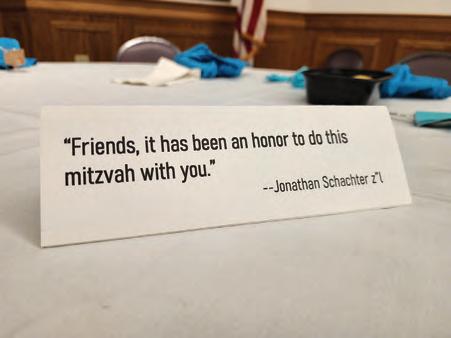
The Babylonian Talmud describes the existence of an early chevra kadisha when recording an incident involving Rav Hamnuna, an early fourth-century leader: After arriving in Darumata, the leader heard a shofar blast announcing a local resident’s death. To Rav Hamnuna’s surprise, townspeople continued working.
Distressed by their seeming disregard, he chastised the group — only to be informed that in Darumata designated entities tended to the dead. Those who continued working, he learned, were not among that sacred society.
As Jews moved throughout the Diaspora, they remained committed to serving their dead through locally formed groups.
In 1564, the Prague chevra kadisha was established by Rabbi Eliezer Ashkenazi. Its practices — along with the Jewish burial rites described in “Ma’abar Yabbot” an early 17th-century Italian kabbalistic work by Aaron Berechiah ben Moses ben Nehemiah of Modena — are largely followed to this day.
The challenge of relying on antiquated texts for modern situations, however, arose during COVID-19. With little known early on about the disease or its spread and risk of infection, Jewish burial societies debated how best to continue operating.
In March 2020, Jonathan Schachter, an NCCK member, agonized over whether to continue performing taharot
“This is something that I’ve been involved with since 2007. It is a significant part of my Judaism. It’s a very integral, very important, very special, meaningful part of my Yiddishkeit, and it hurts to have to be faced with this,” Schachter said at the time.
Schachter, who died in 2022, told the Chronicle in 2020 that NCCK members
“wonderful and illustrious career,” but that she’s ready for the next chapter.
Henry’s announcement isn’t the only change coming to Rodef Shalom.
The congregation is also searching for a new executive director. Barb Feige, who initially filled the position in March 2022 on an interim basis, is retiring this spring.
Feige, Battistone said, has provided “a wonderful service” for the congregation, stepping in at a time when it needed help. In June 2022, after months of congregational conflict, Rabbi Aaron Bisno, who served as Rodef Shalom’s senior rabbi for 18 years, transitioned out of that role and became the Frances F. and David R. Levin Rabbinic Scholar.
“We’ve been very open,” Battistone said. “We’re looking for someone for the next two years, at a minimum but then, what that position looks like moving forward, we’re not sure.”
One change that won’t be happening is anything related to the congregation’s cantor.
“He’s [Glaser] done a great job in our community already,” Battistone said. “It’s crazy — he’s
gathered on a Zoom call in mid-March 2020 to discuss the situation.
Following the meeting, Schacter decided he could not continue performing taharot
“I’m responsible for me, but I also feel a responsibility for three other people in my family that I just can’t take the chance,” he said. “I feel horrible about it. I feel like I’m letting the community down. I feel like I’m letting the family of the maitim (deceased) down. I feel like I’m letting my fellow chevra down, but we’re in completely uncharted waters.”
Within several weeks, NCCK devised a manual for what it called Taharah Ruchanit (spiritual purification).
The process, Cluss noted, was performed in partnership with colleagues from local funeral homes: After a deceased’s body was wrapped in a bag and placed inside a casket, funeral home staff provided a layover.
Each piece of tachrich (simple white burial shroud) was unfolded and placed above the body bag while NCCK members observed and recited liturgy over Zoom, according to Frank.
The burial society performed more than 100 spiritual purifications between March 15, 2020, and June 21, 2021 — when the group resumed in-person taharot
Still pained by the earlier period and their inability to perform the mitzvah of Jewish burial according to tradition, NCCK members traveled to Beth Shalom Cemetery in Shaler Township on Oct. 3, 2021, to “amend and complete” their work.
Over 40 minutes, the group read biblical and Talmudic passages, chanted Hebrew phrases and recited names of the deceased, who — due to pandemic-related concerns — had not been washed before burial.
In an act of apology and seeking forgiveness, according to NCCK member Jonathan Weinkle, water was poured for each of the dead.
Following the Pittsburgh synagogue shooting and pandemic, NCCK was looked to as a model, Cluss said. National regard for the local entity has continued, as “we just completed our own gender expansive taharah manual that we will certainly share with other groups as this initiative expands.”
Cluss serves as Kavod V’Nichum’s copresident, where she helps influence the chevra kadisha movement nationally.
only been with us for nine months — but he’s found a niche here and really enjoys it. We’re excited about continuing to work with him.”
As for the initiative announced in December to explore a collaborative future for Rodef Shalom and Temple Sinai, plans are proceeding.
Shortly after Henry’s announcement, Battistone and Temple Sinai President Stephen Jurman sent out a joint statement saying that a steering committee to examine a possible partnership had been formed. The committee includes the congregations’ respective presidents, a vice president from each congregation and former past presidents.
The congregations also hired an administrative assistant who will help streamline activities like the research, coordination and maintenance of files for Rodef Shalom and Temple Sinai.
The next step will be identifying potential professional consultants to assist with the process. The individual or team hired will have no ties to either congregation.
“While everybody on our steering committee is very talented, I don’t think any of us have ever
Experience and expertise gained from NCCK is immeasurable, she said: “In 20 short years, we have transformed from a very small number of people — who partly knew what we were doing — to a large, experienced and committed group who perform our work in the community with skill, and most importantly, kavana (intention).”
It’s that purposefulness that drives the group and furthers its growth, members explained.
NCCK has 73 members.
Downtown resident Yitzhak Cohen joined last month.
The decision, he told the Chronicle, was spurred by a classmate’s death.
“One of my friends from high school, David Gordon, passed away in the Israeli military about eight years ago,” Cohen said. “It’s something that is still on my mind a lot — partly because I wish I was there to bury him. For some reason, I thought that doing this might bring some closure. And so far, it has in a way.”
Tables inside Temple Sinai were sparsely decorated for the Adar 7 dinner. Along with a yahrzeit candle and glass vase containing fresh flowers, each table had a small placard. The sign read, “Friends, it has been an honor to do this mitzvah with you.”
Schachter used to end each taharah with those words, Rabbi Ron Symons said.
From a nearby seat inside the social hall, Monroeville resident Alan Iszauk picked up a matchbook. He removed a tiny, red-tipped match and ignited a flame.
Iszauk, an NCCK member for nearly 15 years, said the chevra kadisha’s work is labor-oriented and difficult, but there’s a beautiful element to “this wonderful mitzvah.”
“There is more emotion, coming together, beyond the task. Initially, it didn’t matter to me, but I look forward to it now,” he said.
Before the yahrzeit candles on each table burned, Cantor Julie Newman strummed her guitar.
Attendees joined in song: “In the rising of the sun, we remember. In the blowing of the wind, we remember ... So long as we live they too shall live. They are now a part of us. They are now a part of us.” PJC
Adam Reinherz can be reached at areinherz@pittsburghjewishchronicle.org.
done this before,” Jurman said. “It’s important we have someone who is neutral, who doesn’t have any skin in the game.”
The committee will study such things as the buildings of both congregation, their cemeteries, their finances and administrative practices, clergy and worship practices, including how services are run, he said.
“The most important thing and probably the hardest part,” Jurman continued, “is finding out from both sides, our congregants, what they need and what they want in a synagogue, in their worship life and how they feel about things, seeing if we can put together a structure that works for everybody.”
As for Henry’s announcement, Jurman said that Temple Sinai was aware of her decision and that it will be taken into consideration as part of the process that now affects both congregations.
“We’ve been factoring that into our discussions,” he said. PJC
David Rullo can be reached at drullo@ pittsburghjewishchronicle.org.
Cohon:
Continued from page 5
but he had an incredibly Jewish heart,” Gibson told the Chronicle.
Jewish values informed Cohon’s takes on fairness and equity in his work, Gibson, said, adding that “he never failed to look at the individual in front of him.”
Gibson said Cohon “was delighted to be part of CMU” but didn’t brag about the influence
Gaza:
Continued from page 8
force Israel to accept a ceasefire without the release of our hostages, thus harming both the war effort and the effort to release the hostages.”
(The Hebrew-language version of the statement was even more critical of the United States: It said the U.S. abstention — rather than the resolution — “gives Hamas hope.”)
The cancellation of the Israeli delegation came as Biden and Netanyahu have been at odds publicly over whether Israel should invade Rafah, a city on Gaza’s border with Egypt that has been crowded with more than a million displaced Palestinians. Netanyahu’s government says that an invasion is necessary in order to defeat Hamas, which has battalions there. Biden opposes the invasion because of the threat to civilian life.
In a statement on Monday, Israeli Defense Minister Yoav Gallant, who
he had in the CMU role in shaping Pittsburgh and its economy.
“He was so self-effacing, he never gave himself much credit,” Gibson said. “He was a truly engaging man.”
He also was quite persuasive, Dively, the CMU attorney, said. She remembered going to meet Cohon to talk about the position. The two had not met before.
“A friend who did know him called me and said, ‘Don’t take the meeting if you’re not sure
was in Washington to seek U.S. military aid, suggested that he also supported entering Rafah.
“We have no moral right to stop the war while there are still hostages held in Gaza,” Gallant said. “The lack of a decisive victory in Gaza may bring us closer to a war in the north.”
Kirby, the National Security Council spokesman, said he was disappointed with the decision to cancel the visit, speaking to reporters.
“It’s disappointing, we’re very disappointed that they won’t be coming to Washington D.C. to allow us to have a fulsome conversation on the viable alternatives to going in on the ground in Rafah,” he said. “We don’t believe a ground offensive in Rafah is the right course of action.”
But Kirby said that he expected the conversations about Rafah to continue.
“It certainly is not ideal that they won’t be coming to D.C., apparently, to have this
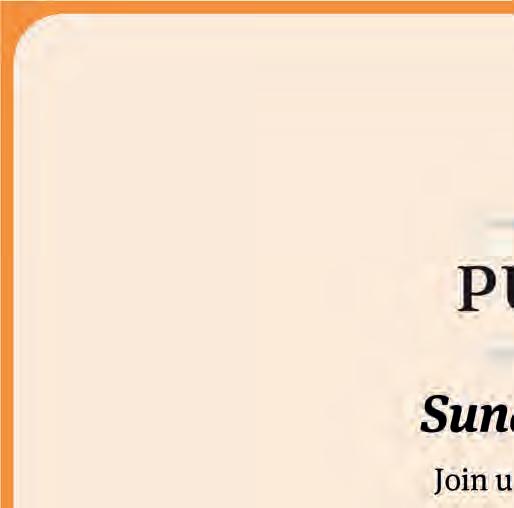
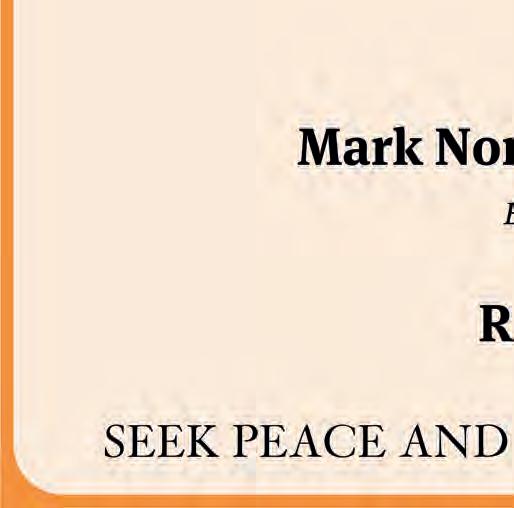
you want the job, because Jerry Cohon is the most persuasive man on the planet,’” Dively said.
“And, it turned out that he was,” she added. “Not in some obvious, hard-sell kind of way, but rather by listening deeply, and asking a few questions which just seemed to unlock for you exactly what you should do.”
“Jerry Cohon’s life came to an end far too soon,” Fellman said in his Temple Sinai eulogy. “One who had done so much for others deserved to enjoy and celebrate more. Jerry
discussion, but that doesn’t mean our ability to talk with them and have conversations have been eliminated,” Kirby said.
U.N. Secretary-General Antonio Guterres called for immediate implementation of the resolution.
“This resolution must be implemented,” he said on X, formerly Twitter. “Failure would be unforgivable.”
It’s not clear whether or how the Security Council would enforce the resolution: Its tools include sending troops in, sanctions and arms embargoes. Military interventions are rare, however, especially with armies as formidable as Israel’s.
“To ensure the parties feel bound by an imposed ceasefire, the imposing entities usually need to exert leverage over them or constitute a credible deterrent to stop them from violating it,” a recent U.N. guidance on the mediation of ceasefires says. “Unless an imposed ceasefire is based on a realistic assessment of the context and an ability
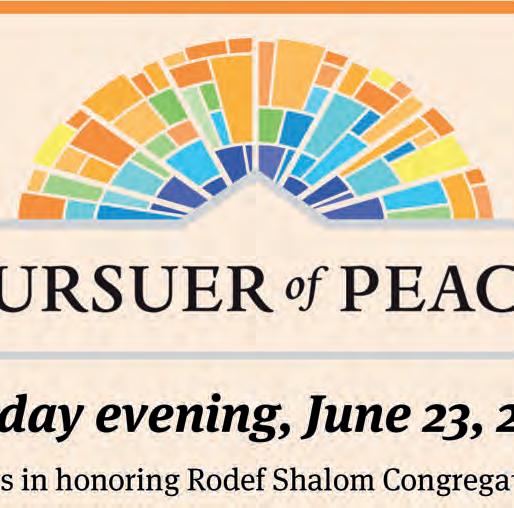

leaves us a beautiful and rich legacy — a life lived helping others, encouraging others, always striving for what is best for everyone.”
“Jerry lived the motto of CMU as fully as anyone could: ‘My heart is in the work.’
Cohon is survived by his daughter, Hallie; grandsons Nathan and Solomon; and sisters Cindy Lowenkamp and Shelia Nathanson. PJC
Justin Vellucci is a freelance writer living in Pittsburgh.
to follow up on the state of compliance by parties, it can become unstable and damage the credibility of those seeking to impose it.”
A number of Democrats in Congress have been calling for a suspension of military assistance to Israel as long as it impedes the delivery of aid. Biden has consistently said suspending military assistance is not on the table, but Vice President Kamala Harris over the weekend said she was not counting anything out if Israel goes ahead with its Rafah operation.
“We have been clear in multiple conversations and in every way that any major military operation in Rafah would be a huge mistake,” Harris said Sunday on ABC’s “This Week.” “Let me tell you something: I have studied the maps. There’s nowhere for those folks to go.”
Pressed as to whether there would be consequences for Israel should it go ahead with the Rafah operation, Harris said, “I am ruling out nothing.” PJC
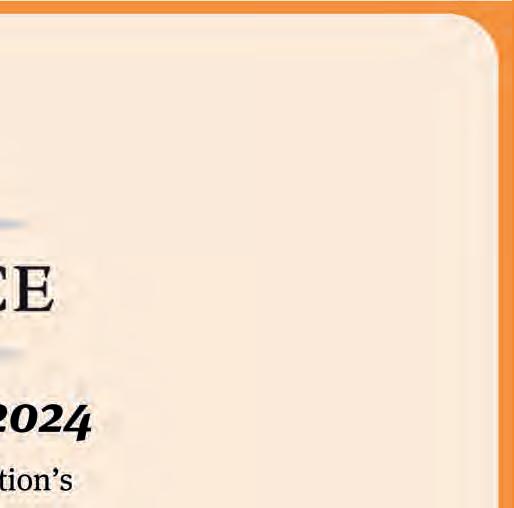
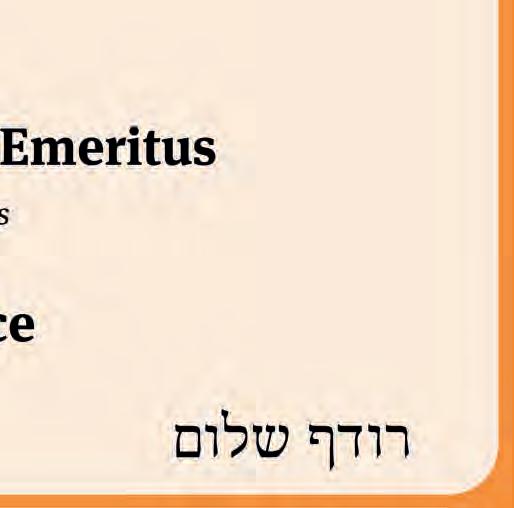
In spring 2022, I participated in a panel where the opening question was “What keeps you up at night?” I described a Venn diagram made up of the following different sets: Israel, social media, cancel culture and, of course, antisemitism. In the center of the Venn diagram, these four sets of topics would be intersected by “loneliness.”
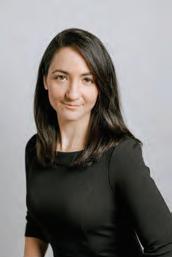
As if being a teen isn’t hard enough, as young Jews navigate their formative years, the insidious nature of antisemitism adds a layer of complexity to their already challenging experiences. The survey conducted by BBYO in early 2024 indicates the harshest reality for North American teens: Antisemitism is directly shaping their identities.
The prevalence of antisemitism undermines the sense of safety and security that teens feel in their communities and schools. Every instance of hateful rhetoric or discriminatory behavior chips away at their trust in the social fabric, leaving them feeling vulnerable and marginalized.
are more concerned about attending school since the start of the war.
Worse yet, 45% of teens have not reported in-person antisemitic incidents that they have experienced or witnessed. The impact of antisemitism extends beyond individual experiences to affect the collective psyche of Jewish teens.
with antisemitism.”
When thinking about the way our teens experience the world, it is this loneliness, which impacts their mental health and well-being, that continues to keep me up at night. The recent dramatic increase in the number of antisemitic incidents our teens are experiencing should raise many concerns about their well-being.
Antisemitism, the same age-old scourge that continues to plague us across the globe, in our social media feeds and in our schools, impacts today’s teens in profound and troubling ways.
Whether it manifests as bullying in school hallways (61% have experienced in-person discrimination) or hateful comments on social media platforms (46% have experienced online discrimination) the fear of being targeted for their Jewish identity looms large in the minds of Jewish teens, robbing them of the carefree adolescence that should be their birthright. The data further indicates that 74% of teens have seen more discrimination in school or during extracurricular activities since Oct. 7, and 55%
As they witness acts of hatred and bigotry directed toward their community, they grapple with feelings of anger, confusion and alienation. Instead of focusing on personal growth and self-discovery, they are forced to confront the harsh realities of prejudice and intolerance, often feeling isolated in their struggle to make sense of the world around them. It is then no surprise that 54% of teens who responded to BBYO’s survey say that their mental health has gotten worse since the Oct. 7 attack on Israel.
Before Oct. 7, when BBYO supported educational programs about antisemitism, it was with an eye toward “recognizing and responding” to any antisemitism teens may face. Since Oct. 7, BBYO’s teens are also asking for educational programs to help them “cope
It is unfortunate that Pittsburgh City Councilmember Barbara Warwick’s opinion piece coincided with the holiday of Purim, when the Jewish people survived Haman’s plan for the genocide of all Jewish men, women and children (“We must call for an end to all attacks on the people of Israel and Palestine,” March 22). On Oct. 7, Hamas aspired to that same goal. Hamas continues to call for the genocide of all Jewish people, celebrated its barbarous acts and announced that, given the opportunity, it would repeat them.
We live in a world of widespread oppression, yet the focus of city councils, the media and universities is on Israel. Over 110 million people are now forcibly displaced worldwide, as a result of persecution, violence and torture, targeting minorities in most cases by their own governments. Over the last decade, nearly a half million people were killed in Syria by its brutal dictator, and 12 million have fled their homes. The protracted armed conflict in Yemen involves extensive human rights violations, with deliberate and indiscriminate attacks on civilians. The attacks on food, water and health infrastructure have created a humanitarian crisis that leaves millions of Yemenis at risk of starvation. There is also devastation in Ethiopia, Somalia, China, Iran, North Korea and other countries. With violence, deprivation and displacement so widespread, one might ask why Israel’s attempt to destroy a terrorist organization is focused on. All over the U.S. and Canada, city councils are considering resolutions demanding a complete cease-fire by Israel. If Israel stopped fighting terrorism, Hamas would have the chance to regroup to carry out its openly stated plans of continuing to kill. Israel must destroy the hundreds of miles of underground tunnels, paid for with humanitarian aid, that were built for the purpose of enabling mass murder.
I am sorry that Warwick has jumped on this hateful and massively-funded and coordinated bandwagon of calling upon Israel to discontinue its military engagement. I am sorry that she quotes statistics from a terrorist organization; that she isn’t protesting the outrageous kidnapping of hostages and demanding that our government rescue them; that she is not calling all of the above-mentioned countries to “affirm each other’s basic humanity.” I am sorry that she is not more concerned that in our own city, Jewish children do not know what it is like to go to a Jewish school, synagogue, wedding or even funeral without armed guards to protect them.
I am most sorry that my city council representative feels that she has to teach Jewish people the importance of life and peace. We are a people who are taught to value all human life, who have a passion for justice, whose daily prayers and sacred writings teach us to protect the vulnerable, and whose most repeated of all of our hundreds of commandments is to “love the stranger”— the outsider, the one in need, the person who is different.
Warwick tells us that “we must listen to and acknowledge each other’s lived experiences.” Please explain that to Hamas, who listened with celebration to their Jewish victims’ dying experiences.
Andrea Chester Pittsburgh
Call for the release of the hostages and the surrender of Hamas
Issuing divisive declarations for overseas events — particularly those that are nuanced and complex — to be decreed in a committee vote, should be approached with caution (“We must call for an end to all attacks on the people of Israel and Palestine,” March 22).
Nobody in the Jewish and Israeli community wants war or bloodshed on either side of this conflict, which has existed in one form or another for millennia. What the Jewish and Israeli communities want is the right of Israel to exist as the safe and defensible historical homeland of the Jewish people.
Understanding the historical backdrop is essential for comprehending the complexities and
Although as a society we recognize the urgent need to address the root causes of antisemitism and create a culture of inclusivity and acceptance for all, our teens pay attention to history: our endless fight to dismantle the toxic ideologies that fuel antisemitism have yet to be successful. And, as they look toward their future, 64% of respondents indicated that antisemitism on college campuses is an extremely or very important factor in their decision of where to attend college.
The impact of antisemitism on today’s teens cannot be overstated. It undermines their sense of security, erodes their collective identity and inflicts lasting harm on their mental well-being.
As a Jewish community, we must stand united in our condemnation of antisemitism and continue to work tirelessly to create a world where every teen can thrive free from the shadow of hatred and bigotry. Their future literally depends on it. PJC
Liron Lipinsky is the vice president of enrichment strategy for BBYO. She lives in a suburb of Pittsburgh.
sensitivities surrounding the current events in Israel. The potential adoption of a cease-fire resolution signifies a lack of belief in Israel’s right to self-defense, instilling fear among Jewish residents and failing to serve the best interests of both Palestinians and Israelis.
The war that Israel is fighting is not and has never been against the Palestinian people but against religious extremism that seeks to exclude Israel and Jews from any future state.
We clearly do not have the solution to this current crisis that was thrust upon the people of Israel, but we also don’t think that the City Council has the solution.
Hamas has the ability to surrender and free the hostages at any time. A call for this by the U.N. or any number of government bodies could save countless lives on both sides.
Any potential cease-fire resolution should be inspiring solidarity, not divisiveness. It should serve the best interests of both Palestinians and Israelis.
Call for the surrender of Hamas and the release of all hostages.
Eva and Dan Gelman Mt. Lebanon
We deserve leaders who ‘understand and respect history’
I was appalled at Councilwoman Barb Warwick’s recent op-ed about the war in Gaza. Her argument that “historical debates are beside the point” ironically highlights the ignorance that underlies her message. History is entirely the point. That is why history is one of the core academic subjects in every institution of learning. One cannot understand or appreciate geopolitical events outside of their context. In no case is that more essential than the conflict in the Middle East.
Absent historical context it could appear that the war in Gaza in response to Hamas’ Oct. 7 attack is just Israel behaving like a bully. And indeed, that is the view of many who don’t have a more thorough understanding of history and its relevance. This oversimplification of Israel as bully is one of the root misconceptions with the calls for “cease-fire now,” especially when those calls do not demand the return of hostages, as Councilwoman Warwick failed to do.
Similarly, the German masses were unable to see past the simplistic yet inaccurate messages that we now clearly identify as propaganda. That led to actual genocide.
We know that those who do not understand and apply the lessons of history are bound to repeat it. Thus, Councilwoman Warwick’s statement is paving that road. The very evening I penned this letter my family would be the victim of a hate crime when our yard sign supporting Israel was vandalized. As a representative of part of the largest Jewish community in Pittsburgh, Councilwoman Warwick should be ashamed. What a betrayal of her constituents! And the insinuation that Jews calling for a permanent cease-fire are somehow more “moral” than the majority of Jews who support Israel’s right to defend itself is inaccurate and inappropriate.
This moment demands — and our community deserves — leaders who both understand and respect history as they form and share their opinions on complex world events.
Aviva Lubowsky Squirrel HillPittsburgh City Councilwoman Barbara Warwick’s appeal for a cease-fire in Gaza is yet another arrogant attempt by an elected official to safeguard Democratic political security at the expense of Israeli national security (“We must call for an end to all attacks on the people of Israel and Palestine,” March 22).
Don’t be fooled by Warwick’s Oct. 7 lip service. The bar for Israeli sympathy is so dismally
Please see Letters, page 13
Last week, the Chronicle asked its readers in an electronic poll the following question: “Will you attend a Megillah reading for Purim this year?” Of the 233 people who responded, 51% said, “Yes, in person”; 36 % said, “No”; and 13% said, “Yes, streaming.” Comments were submitted by 32 people. A few follow.
It’s halacha.
I will be playing King Ahasuerus at my shul’s creative musical spiel for the umpteenth time. As Tevye might sing, “What a great ‘Tradition!’”
Jewish rituals are always best experienced in real time with other people.
Any opportunity that we have to gather as a community and a people strengthens our connection to our history and our nation. The story of this specific holiday should be considered as a sort of guide to our current existence. Chag Purim Sameach. Am Yisroel Chai
I have no family close by, and synagogue membership is too expensive where I live.
My two kids, my husband and I will go to the “Cruising into Purim” JCC Purim carnival and the Chabad of Squirrel Hill Purim party! Costumes and everything!
We will be hearing the Megillah in Jerusalem!
The holiday creates too much noise for my aging ears. It is geared for children — a time to dress up and be loud in shul.
I agree with our rabbi’s emphasis that Purim is the best time to stand up against antisemitism — going to a shul to celebrate yet again overcoming the hate. Celebrating, with joy, being Jewish. Besides, we have a Purim spiel and hamantaschen!
Everybody is obligated to hear the Megillah twice over Purim with very few exceptions to this rule. PJC
— Compiled by Toby Tabachnick
Chronicle weekly poll question: Should the U.S. have vetoed the U.N. resolution calling for a cease-fire during Ramadan and the immediate and unconditional release of all hostages? Go to pittsburghjewishchronicle.org to respond. PJC
Letters:
Continued from page 12
low that merely acknowledging the barbarity of Hamas that day often passes as solidarity for many — it’s not. The councilwoman exposes her insincerity the moment she shamelessly pins the burden on Israel to put down its arms, rather than demanding that Hamas unequivocally surrender and free the hostages.
Warwick naively asks why it is “so difficult to unify around calls for bombs, bullets and rockets to stop?” It’s because most Jews understand that a cease-fire amounts to a strategic victory for Hamas that would only embolden repeat campaigns of murder, mutilation and rape.
The councilwoman then explained why those supporting a cease-fire do not need to be “history experts” to justify their reasoning. “Historical debates are beside the point,” she says, “when more than 1 million people are trapped in Rafah starving and at the risk of bombardment.”
Somehow I suspect Warwick would find historical context especially relevant in justifying the Allied bombardment of Germany. Somehow I suspect Warwick wouldn’t have wept for Dresden — and it’s for precisely the same reason why I don’t weep for Gaza.
She rounds off her petition by exploiting the Jewish minority that opposes Israel’s operation in Gaza, reassuring us that these Jewish renegades effectively calling for national suicide aren’t acting out of self-hatred, but rather from “moral conviction.” This is just condescending. It implies that useful idiots and local officials with no dog in this fight know what’s best for the Jewish people more than the Jewish people themselves.
It’s easy for people like Warwick to support dead Jews, but only when the Jews fight back do we become a problem. If Warwick truly wishes to see peace in the land she calls “Palestine,” she’d support Israel’s aim for total victory over Hamas. But for many Democratic officials, it might cost them their job.
Warwick’s op-ed ‘drips with hubris’
Aidan Segal Pittsburgh
Councilwoman Barb Warwick’s call for a cease-fire in Gaza endeavors to be balanced and empathetic but drips with hubris. The central question she asks is, “Why is it so difficult to unify around calls for the bombs, bullets and rockets to stop?” What an obtuse question. The worldwide Jewish community has been screaming why it’s not just difficult, but impossible. We do care about innocent people in Gaza and, at the same time, we cannot compromise on defending ourselves and the Jewish state.
It is good to see the list of politically correct acknowledgments Warwick assembled, however, her ultimate recommendation of a cease-fire fails to acknowledge that Hamas has promised more attacks like Oct. 7. It fails to acknowledge that this proposal would allow terrorists time to regroup, resupply and rearm. Warwick satisfies her obligation to acknowledge antisemitism and feelings of “fear and anxiety” but in her next breath dictates that the Jewish people should accept murder, rape and torture passively. Perhaps the councilwoman should acknowledge that Hamas could simply return the hostages for a cease-fire — the deal which, she neglects to mention, has been on the table — instead of glossing over the hostages’ “increasingly bleak” outlook.
It is most insulting that Warwick chooses to pit the Jewish community against itself. When the Chronicle, the very platform through which she chose to lecture the Jewish community, polled its readers asking, “Should local city and county councils consider resolutions calling for a cease-fire in the Israel-Hamas war?” of the 364 people who responded, 90% said no; 7% said yes; and 3% said they don’t know. Thank you, Councilwoman Warwick, for spotlighting the 7% and turning a deaf
ear to the 90%. Thank you for portraying our community as divided when we are very much united. P.S. Israel is at war with Hamas, not with Palestine (I’d be interested in learning where that is; perhaps Councilwoman Warwick can show me?) or Palestinians as a group.
Chaim Strassman
Pittsburgh
From an editor’s note accompanying Councilwoman Barb Warwick’s opinion piece, to an article reprinted from the Jewish News Syndicate (“Hamas fakes casualty figures: ‘The numbers are not real,’” online, March 20), the Chronicle certainly seems intent on raising doubts about casualty numbers in Gaza. The analysis cited in the JNS article draws on a cherry-picked review of 15 days (Oct. 26 to Nov. 10). This superficial analysis stands in stark contrast to two peer-reviewed publications in the leading medical journal The Lancet in early January. These papers, by researchers from Johns Hopkins University and the London School of Hygiene and Tropical Health, concluded that there was “no evidence of inflated rates” and that there was evidence of “high excess mortality among Gazan population groups that are likely to be largely civilian, including humanitarian and health-care workers, indicating a substantial number of Palestinians killed during this period.” If the Chronicle wishes to call these conclusions into question, appropriate sources and analyses should be presented.
Schumer is right: Netanyahu is an ‘impediment to peace’
Harry Hochheiser
Pittsburgh
It was a bold move for the highest ranking Jewish member of Congress and a strong supporter of Israel to deliver the speech we heard from U. S. Senate Majority Leader Charles Schumer, in which he called for an election for prime minister to take place in Israel if and when the war against Hamas winds down (“Chuck Schumer calls for new elections in Israel, says Netanyahu has ‘lost his way,’” online, March 14).
Schumer began by expressing his contempt for the instigators of the war — the savages of Hamas — and he chose his words carefully throughout. He did not call for Prime Minister Netanyahu to resign nor for any immediate action to be taken and he emphasized that when elections are held, he will respect the verdict of the people of Israel whatever it may be.
Schumer accurately noted that Netanyahu is an impediment to peace and that Israel’s actions in Gaza, vis-a-vis civilians who are being killed and who are starving in desperate conditions, are now causing the Jewish state to be even more widely criticized throughout the world.
Also on the front burner should be concern over the very real possibility of terrorist acts to be perpetrated against the United States both here and/or abroad as it is funding the war, seen by many, albeit inaccurately, as Israeli military actions that are targeting civilians.
The argument used by those who challenge Schumer is that he is engaging in foreign interference in the affairs of a sovereign state. It should be noted that the United States is no ordinary country as far as Israel is concerned: Israel exists because of the aid and nonfinancial support provided by our country, its greatest friend since its birth in 1948. Certainly counsel offered by Americans who are friends of Israel should be considered.
What is taking place in Israel and Gaza is a calamity of historic proportions. The cost is enormous, and there is uncertainty about whether anyone in the region will be safer as a result.
The age-old dilemma of how Israel and its Arab neighbors can live in peace continues to be the unsolvable conundrum.
Oren Spiegler Peters TownshipIlove sharing recipes like this because they offer a basic instruction, but the possibilities of what you can create are endless.
Here are recipes for both a cheese and olive pastry and a chocolate pastry —two different options using store-bought puff pastry dough. These take 5-10 minutes to prepare, so on a half-hour’s notice you can make a sumptuous savory or sweet pastry to serve with coffee or a glass of wine.
The braid design looks more intricate than it is and can be completed in fewer than 5 minutes. The amount of filling affects the appearance of the pastry when baked, but it’s pretty either way.
Cheese pastry
1 piece of pareve frozen puff pastry (they typically come two to a box)
For the cheese filling:
1½ cups shredded Muenster cheese
2 tablespoons grated Parmesan cheese
1 large egg
A pinch of salt and pepper of your choice
2 tablespoons green olives, sliced or halved (optional)
1 tablespoon finely diced parsley

1 egg plus 1 teaspoon of water whisked together for egg wash
Sesame seeds for topping (optional)
Mix all ingredients in a bowl using a fork. Set aside.
Remove the pastry from the freezer and line a small baking pan with parchment paper.
About 25 minutes before preparation, set the oven to 425 F and place the wire rack in the top third of the oven. (When baking, it’s important that the oven has time to preheat. After setting the oven’s temperature, allow it to rest empty for at least 10 minutes before baking.)
While most pastry packages say it takes a half-hour to thaw, I find it usually takes 45
minutes unless your kitchen is hot. There is a sweet spot between frozen and room temperature. You should be able to unfold the pastry and not have the seam crack and separate completely. If it is too warm, the dough will not retain its shape. The pastry can feel very cold and firm to the touch but when it’s ready to use you will be able to gently unfold it onto the baking sheet and discard the center piece of paper that came between the pastry layers.
Using a sharp knife or kitchen shears, cut from the outside edge into the first seam while avoiding cutting into the main center section.
Repeat this step and cut 9 or 10 times up each side of the pastry so that it looks like both side edges have a fringe.
Cut away the outer two pieces of fringe on each end so that the middle portion notches out about an inch on each end.
Gently scoop the cheese mixture onto the center panel and pat it down over the rectangular center. You can use the back of the spoon to push any bits that fall into the fringed pastry back toward the center.
If you want to add olives, scatter them on top of the filling.
Starting at one end, turn the end piece up into the center, which will seal the end of the pastry. Cross the first piece of pastry on the left side over and up to the right, which will partially cover part of the bottom end piece, then cross the first piece on the righthand side up and to the left, tucking the edge around the filling.
Repeat the braid all the way to the top.
Before you cross over the last two pieces, tuck the top notched-out area down and in to cover the edge of the pastry, then cross over the last two pieces and gently pinch them.
If you have a bit of extra pastry, tuck it under the bottom.
Brush with the egg wash and sprinkle with sesame seeds, if desired.
Bake for 28-30 minutes.
Allow the pastry to cool on the baking sheet for 15 minutes before serving. This also can be served at room temperature, but I prefer it warm. This recipe makes 5 small slices.
Chocolate pastry
1 package of pareve frozen puff pastry
2-3 ounces of a chocolate bar of your choice Egg wash as noted above
Powdered sugar for dusting, optional
Follow the instructions above for thawing and preparing the puff pastry sheet. The oven temperature, technique and egg are all the same.
I use chocolate that comes in a bar with a grid of squares, with three squares per row. I break the chocolate into 5-6 rows and arrange it in the center of the pastry. You may need to buy two chocolate bars depending on their size.
Roll up the end edge and braid the pastry as noted above, brush it with the egg wash, and bake at 425 F for 26-30 minutes or until golden brown.
Remove from the oven and cool for 20-25 minutes before serving.
If you use dark, bittersweet chocolate, this pastry will have little sugar in it because the pastry dough does not contain sugar. You can sprinkle a little on top of the chocolate before braiding the pastry dough. You can also sprinkle the pastry with powdered sugar to add a little sweetness to the dessert.
This is the perfect treat to whip up if you have someone special coming over for a cup of coffee. I’ve also filled the pastry with cream cheese mixed with sugar and fresh fruit or jam, which comes out like a Danish.
I hope that these recipes bring you joy. Enjoy and bless your hands! PJC
Jessica Grann is a home chef living in Pittsburgh.
Potato
Beef
Apricot





















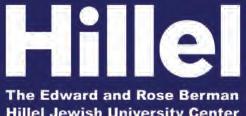







Pittsburgh’s kosher consumers can look forward to a new place to satisfy their hunger.
Bella’s may be opening in the coming weeks, according to its owner, Yehuda Gutman.
With a menu including shawarma, falafel, grilled chicken, hamburgers and fries, the eatery is an outgrowth of an appetite and years of preparation.
Its origins stem from an evening stroll Gutman took in Squirrel Hill about a month ago.
“I was hungry and realized I don’t want to go to Oakland. I wanted something around here,” he said.
Gutman noticed that Frankie Bunz, a hot dog restaurant, had closed and that a sign was posted in the window listing the prop erty for lease.
The Squirrel Hill resident, who worked in food services for more than a decade, inquired.
Things moved pretty quickly, he said, and though it didn’t work out at that location, Gutman is exploring other Squirrel Hill spaces.
Gutman, 34, has long wanted to open

About 18 months later, Gutman became the manager of the deli and catering department at Pomegranate, a Brooklyn-based supermarket
Working at Pomegranate, Gutman said, introduced him to what’s needed when oper-
I learned about dealing with different customers and just learning about busi-
fter nearly seven years in New York, Gutman got a phone call from his old boss, Aaron Siebzener, Milky Way’s owner, who wanted to open a satellite restaurant and
Gutman agreed to join, headed west and spent two-and-a-half years helping Siebzener establish Milky Way and Preferred Kosher
He eventually made his way back
“My mom got sick, and I wanted to come back and be closer to her,” he said.
Gutman’s mother, Belle, a former teacher at Hillel Academy of Pittsburgh who spent decades working with infants, died in October.
Opening Bella’s is a chance to honor her and serve the community, Gutman said: “I
hope that when people see a sign that says ‘Bella’s’ outside it will remind them of who my mother was — how nice she was, and giving and helpful.”
He also hopes the venture proves there’s a desire for more kosher restaurants in Squirrel Hill.
Gutman believes kosher consumers want more options for picking up sandwiches during the day or taking out meat dishes for dinner. And though Bella’s will have a couple of small tables for customers who wish to dine in, the setup is geared toward takeout, he said.
A soft launch is planned for the coming weeks, though that’s dependent on how quickly Gutman can locate a site, kasher equipment and adhere to health department requirements, he said.
Once it’s up, Gutman looks forward to leaning on his years of expertise while working alongside Pittsburghers to strengthen the local kosher culinary scene.
“I’m going to give it my all to make it successful,” he said. “Hopefully, this new restaurant can be the start of new times in Pittsburgh.” PJC
Adam Reinherz can be reached at areinherz@pittsburghjewishchronicle.org.
ACanadian movie theater said it was postponing a Jewish film festival, over the objections of the local Jewish federation, owing to “security and safety concerns at this particularly sensitive time.”
The Playhouse Cinema in Hamilton, Ontario said in a statement last week that it decided to postpone the Hamilton Jewish Film Festival, which it had been slated to host in April. The theater said it did so “after receiving numerous security and safety related emails, phone calls, and social media messages.”
The theater’s statement, posted to social media, did not provide details on the nature of the safety concerns, and the theater did not respond to requests for comment as of press time.
But the statement came as the arts world has been roiled by protest over the Israel-Hamas war. One of the films to be screened, “The Boy,” is a short film about life on the Israel-Gaza border and was directed by Yahav Winner, who was murdered in the Oct. 7 Hamas attack that launched the war.
A spokesperson for the Hamilton Jewish Federation, which had been partnering with the theater on the festival, told the Jewish Telegraphic Agency it was “deeply dismayed” by the decision, which it said the theater made on its own.
“This decision, made in response to a few complaints and threatening emails objecting to our festival’s lineup, including films from Israel,

represents a missed opportunity to engage the Greater Hamilton community in a meaningful cultural event, particularly in the wake of the alarming rise of antisemitism in recent times.”
The federation added that the move to postpone the festival “was not mutual and was made solely by the Playhouse Cinema.” It also said that “there were no specific threats or incidents that warranted the cancellation of the festival.”
The federation said it would still host the festival “later this spring” in its own facility, without the theater’s involvement.
While the theater’s statement did not mention the war, it comes as debate over the fighting has spread across the world of arts and culture. Jewish spaces and cultural institutions headed by Jews are increasingly feeling heat from a rise in pro-Palestinian activism and antisemitic attitudes, and Jewish performers and authors have had their events canceled. Events featuring Palestinian artists or pro-Palestinian viewpoints have likewise been canceled.
The protests have impacted film festivals in Europe as well as North America. Last
month, an Israeli film festival in Barcelona was forced to change venues due to a harassment campaign. In November, an Israeli-American director-actress was disinvited from a Stockholm film festival.
Canada has also seen tensions around the war. In recent months two Canadian theaters canceled planned stage productions of a play about an Israeli medical rescuer, and a university student union in British Columbia came close to voting on a measure calling for an end to an area Hillel’s campus presence. In February, an International Women’s Day event to be held in Ontario disinvited a Canadian cyclist due to criticism of her past service in Israel’s military. That event was later canceled altogether.
This week the Canadian parliament came close to voting on a measure that would have recognized Palestine as a state, until the demand was removed at the last minute. Canadian Jewish groups still criticized the motion’s passage, which included non-binding calls for a ceasefire, continued funding of a United Nations refugee aid group whose employees had ties to Hamas and a ban on Canadian weapon sales to Israel.
Deborah Lyons, Canada’s special envoy for preserving Holocaust remembrance and combating antisemitism, said last week that the postponement of the Hamilton festival was “reminiscent of 1930s Germany when hateful anti-Jewish propaganda and exclusion of Jews in business and culture led to the slaughter of 6M European Jews as the majority of its citizens stayed silent.”
In addition to “The Boy,” the festival’s scheduled offerings had included “Women in Sink,” a short film about a hair salon in Haifa’s Christian Arab community, and “The Man in the Basement,” a modern French drama about Holocaust denial.
In its statement, the theater affirmed a general commitment to diversity, saying, “The Playhouse Cinema’s mission is to be a welcome home to a variety of cultural groups, serving the Hamilton area through our film programming, and in offering our venue for rentals.” Among the theater’s current offerings is the Holocaust drama “One Life.”
Jews on social media criticized the theater’s decision to postpone the festival.
“If the Playhouse Cinema was shocked at receiving threats for hosting a Jewish event, just wait until they hear what it’s like to actually be a Jew in Canada,” Joe Roberts, chair of the progressive Zionist group Meretz Canada, wrote on X, formerly Twitter.
“Every time we cancel something Jewish because of ‘security and safety concerns’ we are empowering those who use threats and intimidation and terror,” Brian Dijkema, the president of the Hamilton-based nonpartisan Canadian think-tank Cardus, posted on the platform. PJC
This year, Passover begins at sundown on Monday, April 22, and PA’s presidential primary is Tuesday, April 23.
If you’d like to vote by mail, request your mail ballot NOW and return it by 8 p.m. on April 23.
April 2024
All PA registered voters are eligible to request a no-excuse mail ballot by 5 p.m. April 16.
Your options to request a mail ballot include:
» Visit vote.pa.gov/ApplyMailBallot and request it online.
» Visit your county elections office, where you can apply for your mail ballot, receive it, complete it, and return it all in one visit.
» Complete a paper mail ballot application and send it to your county elections office.









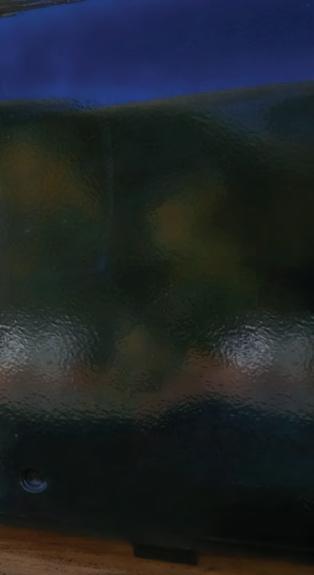

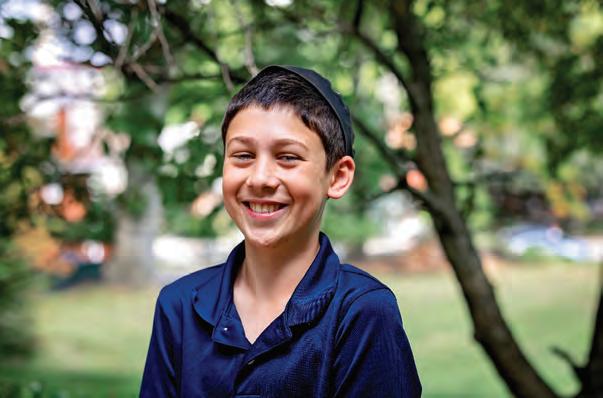
Brett Sydney Baron will be called to the Torah on Saturday, March 30, 2024, at the Jewish Community Center. Proud parents Adam and Liza, younger sister Tatum and grandparents Madelon Edelstone, Daniel Edelstone (Dodi), and Annelyn and Rick Baron will be joined by extended family and friends in celebration of Brett becoming a bar mitzvah. A seventh grader at Community Day School, Brett plays on the soccer, basketball and ultimate frisbee teams, participates in musical theater and embraces his roles on Student Council and as a student ambassador. Brett is the ultimate sports enthusiast, a passionate team player, an inquisitive learner and in constant pursuit of social justice. Mazel tov BB!

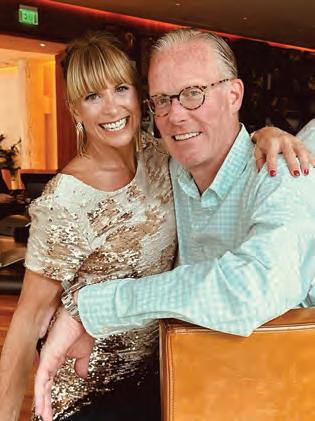
OArthur and Lynn Smith of Squirrel Hill are thrilled to finally announce the engagement of their daughter Bryna Unger Smith to William Preston Bresnahan II , son of Bill and Peggy Bresnahan of Oakmont. Bryna is in private practice as an occupational therapist. William is a partner of the law firm Bresnahan, Finnegan & Bresnahan, P.C. The couple met and fell in love in Pittsburgh and are planning a winter wedding in 2025.
Dr. David Spokane and Sharon Spokane announce the engagement of their daughter . Drew’s parents are Harry and Lori McElrath. Grandparents are Mel and Bette Spokane and Richard and Barbara Augustine. Karissa is a dental student at West Virginia University, and Drew is a financial specialist at PNC. PJC


ne of the central narrative elements of Parshat Tzav is the ordination of Aaron and his sons as the priests. Moses assembles the whole people outside the Tent of Meeting and then performs the prescribed sacrifices for the ordination ritual. Aaron and his sons then remain in the tent for seven days, specifically warned that leaving the tent before that time would be a capital offense. It is interesting to note that the sacrifices and accompanying rituals, normally the exclusive domain of the priests, are performed by Moses. Clearly this is because the priests have not yet been consecrated to be allowed to do so, and Moses has already attained the required state of holiness through his
in the center of the Torah. There is no secret handbook that the priests alone can access; all of the knowledge regarding what to do and how to do it is publicly available. The various offerings at the altar take place in view of the entire people, both here and in general. As a parallel, the priests retire to the private quarters to consume their portions of the offerings. The period of ordination sheds some insight here as well. The private component involves a more intimate connection with and exposure to the Divine Presence. Just as Moses enters the Tent of Meeting to commune directly with God, so too the priests experience God more directly in private. As we saw in Exodus 20, God’s Presence was too overwhelming for the people in general; those who are elevated in holiness need to be away from the people to have these more intimate encounters.
Communal worship is one of the central elements of Jewish life. There is real power in gathering together with the community to lift our voices in song and praise.
role as God’s messenger. The Vilna Gaon taught that during the seven days’ period when the priests were sequestered, Moses would attend to the daily offerings of the Tabernacle (cf Aderet Eliyahu on Leviticus, 8:33).
While Moses performs the public tasks of offering the sacrifices and enrobing Aaron and his sons, the actual ordination takes place in private by God. Leviticus 8:33 is translated by the Jewish Publication Society as: “You shall not go outside the entrance of the Tent of Meeting for seven days, until the day that your period of ordination is completed. For your ordination will require seven days.” More literally, the last portion reads: “… for seven days [God] will fill your hands.” On one hand, the process is active, not passive, and on the other hand carried out by God, not Moses.
This contrast between public and private is an important one. It is significant that the whole book of Leviticus, as a manual for the priests to carry out their duties, is contained
This model can inform how we approach our worship today, even though our experience is through prayer and not through animal sacrifice. Communal worship is one of the central elements of Jewish life. There is real power in gathering together with the community to lift our voices in song and praise. We are also each repeatedly called to elevate ourselves in holiness, in emulation of the holy God. Whether in the midst of the congregation or on our own, we must each craft a space that allows us to seek out God’s presence, to allow ourselves to be vulnerable and open to the experience of something beyond the physical and transient. Through the combination and public and private, communal and individual, we strengthen ourselves, our community, and our world.
Shabbat shalom. PJC
Rabbi Howard Stein is the rabbi of Temple B’nai Israel in White Oak. This column is a service of the Greater Pittsburgh Jewish Clergy Association.

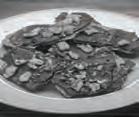

COHEN: Lois Cohen, on Thursday, March 21, 2024. Beloved wife of the late Allan Cohen. Loving mother of Lawrence (Kristin) Cohen and Norman (Anne) Cohen. Cherished grandmother of Frank, Sarah, Kelsey (Anthony), Ian, Molly, Evan, Joe and Kate, and great-grandmother of Kira. Lois is also survived by many dear friends. Lois was born in Pittsburgh to Rae and Hy Gershuny on April 25, 1933. She never left her hometown, remaining a lifelong Pittsburgher and often referring to Pittsburgh as “the best city ever.” Lois adored her years as a substitute teacher within the Pittsburgh Public Schools and enjoyed joining the “Walkers & Talkers” in Schenley Park every week. She was a ubiquitous presence in Squirrel Hill, chatting and making friends wherever she went. If you were fortunate enough to meet Lois, you know firsthand how her positivity and outgoing personality was bound to make your day brighter. Everyone loved Lois But at the end of the day, Lois most loved returning home to her family. For over 60 years, she doted on her Allan, going everywhere and doing everything with him. They were a perfect match and a wonderful couple. Lois was devoted to her sons, Larry and Norman, always encouraging them to be the best versions of themselves. However, her favorite role was being grandmother and great-grandmother. Lois treasured their time together and never missed an event for any of her eight grandchildren. She was the protective matriarch who loved her family dearly, and they loved her just as much in return. Lois will be deeply missed. Services were held at Ralph Schugar Chapel, Inc. Interment Beth Shalom Cemetery. In lieu of flowers, contributions may be made to Equal Justice Initiative, 122 Commerce St., Montgomery, AL 36104 or eji.org. schugar.com
SPOKANE: Jules Spokane, Dec. 7, 1934 – March 19, 2024. Jules Spokane, 89, passed away peacefully on March 19, 2024, surrounded by his family. Born and raised in the East End of Pittsburgh, Jules was the oldest son of the late Eli and Freda Spokane, who were the proud owners of Spokane’s Bar. He graduated with high honors from Peabody High School and then continued his education at the University of Pittsburgh, where he graduated with honors in business. While attending Pitt, he was a brother and the financial chair of Sigma Alpha Mu along with being a dedicated member of the US Army Reserve for several years. Pitt was also where Jules met his late wife, Bernice (Cohen) Spokane, and they were married at Webster Hotel in 1957. Jules was well known in Pittsburgh for his accomplishments with Hamburg Brothers Inc. As president/CEO, he led and expanded the company into one of the largest privately owned companies in Pittsburgh’s history. He was proud to say that he knew and called each of his 200 employees by their first name. Jules was always a dedicated and devoted Pittsburgh sports fan and season ticket holder. He partook in handball, racquetball, tennis and golf throughout his adult life. Also, Jules was an active member of the prestigious Duquesne Club of Pittsburgh and a member of the Tree of Life synagogue. After his retirement, Jules and Bernice
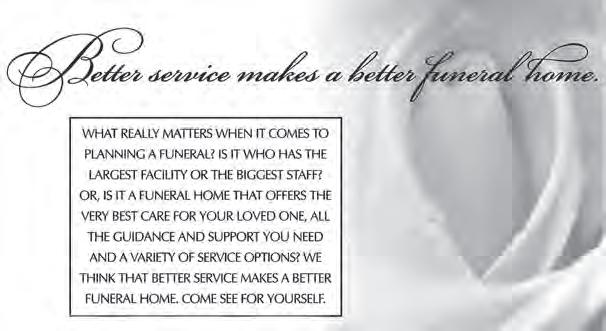

Jewish Association on Aging gratefully acknowledges contributions from the following:
A gift from ... In memory of... Anonymous . . . . . . . . . . . . . .Bernice M Israel
Anonymous . . . . . . . . . . . . . .Sidney Jay Israel
Susan R . Cohen . . . . . . . . . . . Birdie Schwartz
Karen R Jurgensmier . . . . . . . . . . Samuel Rosenfeld
Jeffrey L Kwall . . . . . . . . . . . . . . .Saul Kwall
Randy Malt . . . . . . . . . . . . . .Renee Malt Hart
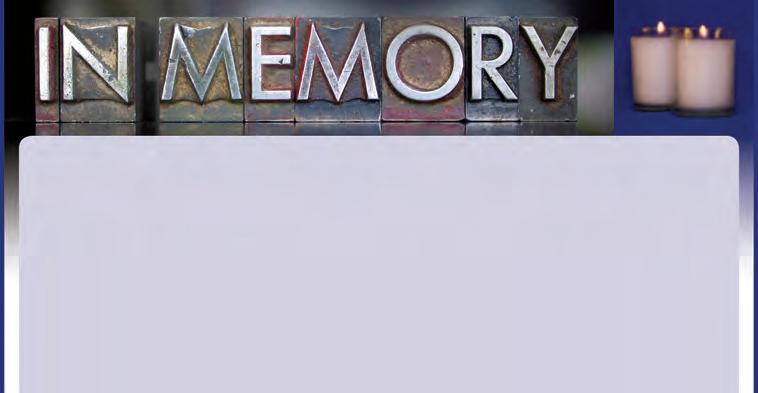
Sunday March 31: Sarah Dorothy Cohen, Gerald B . Greenwald, Saul A Kwall, Julius Jakob Maas, Darlene Robinowitz, Birdie H Schwartz
Monday April 1: Bella Bilder, Rita M Friedman, Charles Gilles, William Hinkes, Haimen Kauffman, Abraham Pervin, Al N Plung, Benjamin Siegal, Vera Silverman, Fannie G Tavernise
Tuesday April 2: Rose Bahm, Bernice M Israel, Bella Rosenzweig
Wednesday April 3: Ann Goldstein Beck, Herman B Cohen, Albert Gross, Herman Samuels, Nathan Louis Stearns, Albert Weinberg
Thursday April 4: Joseph Bleier, Belle Finkel, William Horwitz, B .J Mundel, Samuel Rosenfeld, Audrey M Seigworth, Sophie Warmstein, Tillie Rosenberg Westerman
Friday April 5: Anne Fierst Goldberg, Ann R Klein, Ethel Plesset, Aaron Louis Shefler, Morris Simon, Anna Snitkin, Sam Weiss
Saturday April 6: Sidney Jay Israel, Rory Sue Melnick, Rose Schultz, Beltran Shine, Geraldine Wald










The Podolier Cemetery represents a landsman shaft, an organization of immigrants from a particular European town that resettled in America. Podolier societies existed throughout the United States to keep those from Podolia “along the valley” Region of west-central Ukraine close to each other and in support of one another. Pittsburgh’s Podolier Society was led by the founders Charles and Ethel Finesman, and generations of Levines that carried on the tradition of maintaining this small and very well-kept cemetery sandwiched in between WC #975 to its west and the old section of Kether Torah to its east.
The Podolier Cemetery represents a landsman shaft, an organization of immigrants from a particular European town that resettled in America. Podolier societies existed throughout the United States to keep those from Podolia “along the valley” Region of west-central Ukraine close to each other and in support of one another. Pittsburgh’s Podolier Society was led by the founders Charles and Ethel Finesman, and generations of Levines that carried on the tradition of maintaining this small and very well-kept cemetery sandwiched in between WC #975 to its west and the old section of Kether Torah to its east.
relocated to Boca Raton, Florida, where they enjoyed worldwide travel. Jules is remembered by his brother Melvin Spokane (Bette), his children Zachary Spokane, Laurie Hitrys (David) and Kenneth Spokane, and his grandchildren Courtney Brost (Kevin), Jared Hitrys, Lindsay Hitrys (Ryan) and Jordan Spokane (Sophia). Jules LOVED spending time with his family and thoroughly enjoyed being a Papa and was looking forward to becoming a Great-Papa in April. Memorial contributions can be made in his honor to AMVETS amvets.org or a Jewish organization of one’s choice.
There are 105 graves, with the earliest dating to 1878. Finesmans, Reznicks and Waneticks, all old Pittsburgh names make up a significant percentage of those interred at Podolier. Private First-Class Joseph Solomon was killed in action on Aug. 8, 1944.
The PodolierCemetery was turned over to the JCBA in 2022.
There are 105 graves, with the earliest dating to 1878. Finesmans, Reznicks and Waneticks, all old Pittsburgh names make up a significant percentage of those interred at Podolier. Private First-Class Joseph Solomon was killed in action on Aug. 8, 1944.
The Podolier Cemetery was turned over to the JCBA in 2022.

For more information about JCBA cemeteries, plot purchases, to volunteer, to read our complete histories and/or to make a contribution, please visit our website at www.JCBApgh.org, email us at jcbapgh@gmail.com, or call the JCBA office at 412-553-6469.
For more information about JCBA cemeteries, plot purchases, to volunteer, to read our complete histories and/or to make a contribution, please visit our website at www.JCBApgh.org, email us at o ice@jcbapgh.org, or call the JCBA o ice at 412-553-6469.
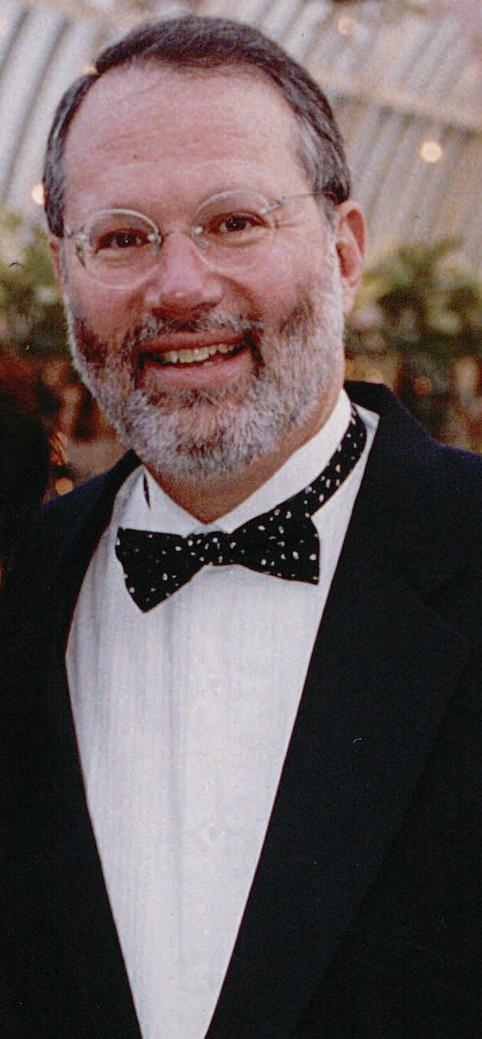
Sign up on the right hand side of our homepage. pittsburghjewishchronicle.org
WEISSMAN: Michael B. Weissman, age 73, on Sunday, March 24, 2024, after a courageous battle with progressive supranuclear palsy. The son of the late Norman Weissman and the late Jacqueline Greene Wechsler. Beloved husband of Nancy (Field) Weissman. Loving father of Andrew Weissman, Timothy Weissman and Kathryn (Michael) Kaplan. Brother of Roberta Samuels and Amy (Dean) Drezner. Also survived by many nieces and nephews. Michael was a financial adviser with Merrill Lynch. Services were held at Temple Emanuel of South Hills. Interment Mount Lebanon Cemetery/ Temple Emanuel section. Contributions may be made to CurePsp, 325 Hudson St., 4th Floor, New York, NY 10013 ( psp.org ) or Temple Emanuel of South Hills, 1250 Bower Hill Road, Pittsburgh, PA 15243 (templeemanuelpgh.org) or Mount Lebanon Public Library, 16 Castle Shannon Blvd., Pittsburgh, PA 15228 (mountlebanonlibrary.org). Arrangements entrusted to Ralph Schugar Chapel, Inc. schugar.com PJC








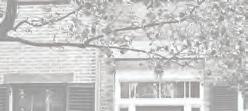

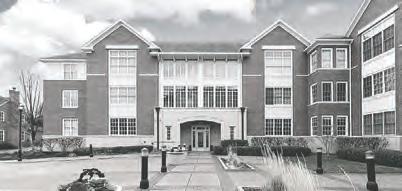






Neville House
New listing! 2 bedroom 2 bath bright open unit with spectacular views. Enjoy open spaces in this luxury condo. Close to hospitals, universities, and transportation.
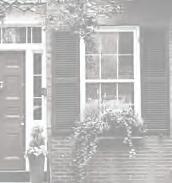
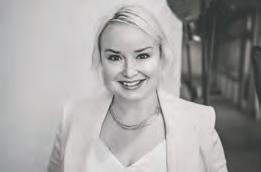






with sparkling hardwood floors, and lots of light pouring in, a sleek gourmet kitchen,
outdoor courtyard, and a 2 integral garage. Steps from Point Breeze’s vibrant business community. Easy access to Frick Park, Shadyside, Downtown and Oakland. Very Special.
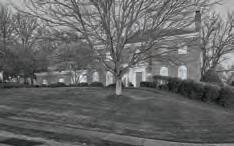

MONROEVILLE • $750,000
328 Shalimar Court


Nestled at the end of a tranquil cul-de-sac, this exquisite residence epitomizes timeless elegance and sophistication. Adorned with graceful touches, the sprawling 5-bedroom, 4.2 bathroom estate o ers an unparalleled living experience. Spanning across an expansive 0.61 acres of meticulously manicured grounds, privacy is paramount, with a massive fence enveloping the rear and side of the home. The three-car garage provides ample space for vehicles and storage. Inside, a grand foyer welcomes you with soaring ceilings and an abundance of natural





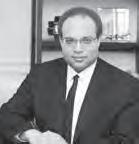


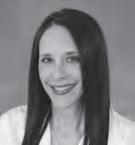









Bring them home Purim style
With Purim falling on Sunday, March 24, the weekly outdoor Bring Them Home vigil was moved indoors to Temple Sinai for a special evening program. Participants heard from IDF soldiers about the Israel-Hamas war and the status of hostages who have remained prisoners of Hamas since Oct. 7. The program was followed by a Purim party with face painting, a costume contest and dancing.
